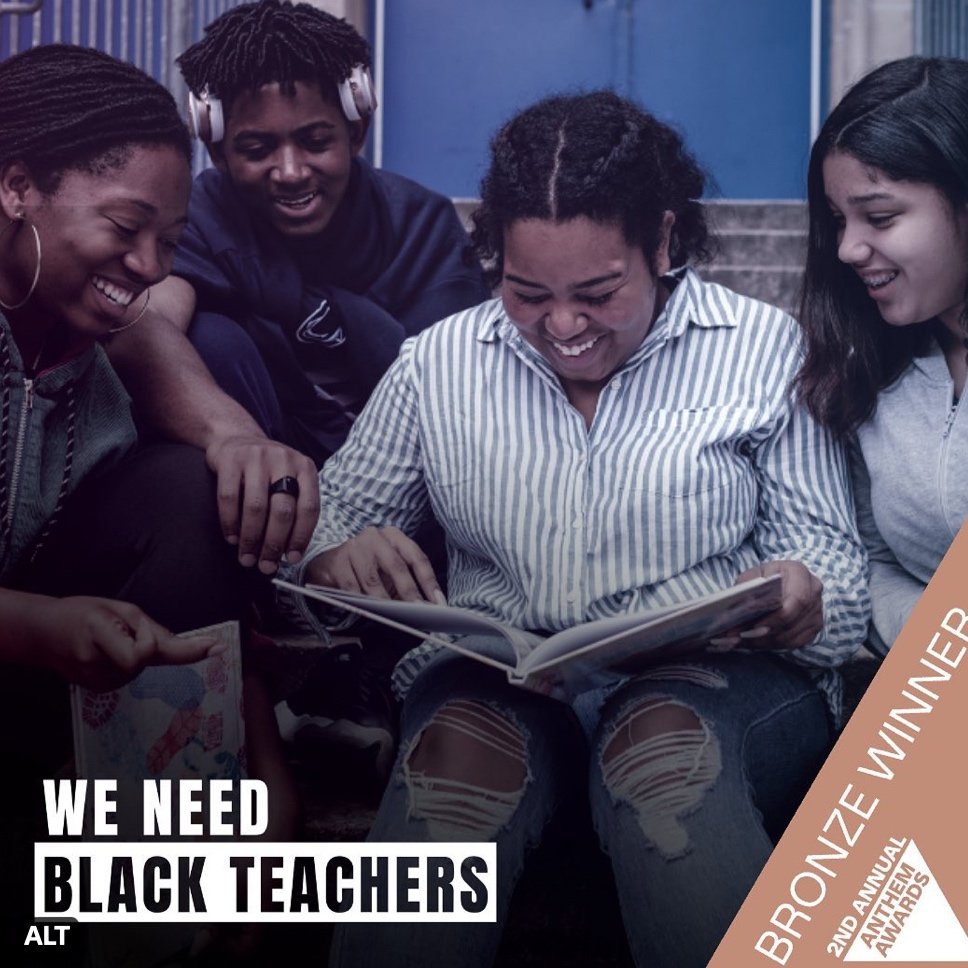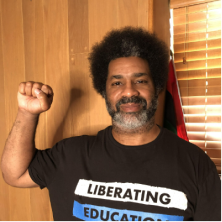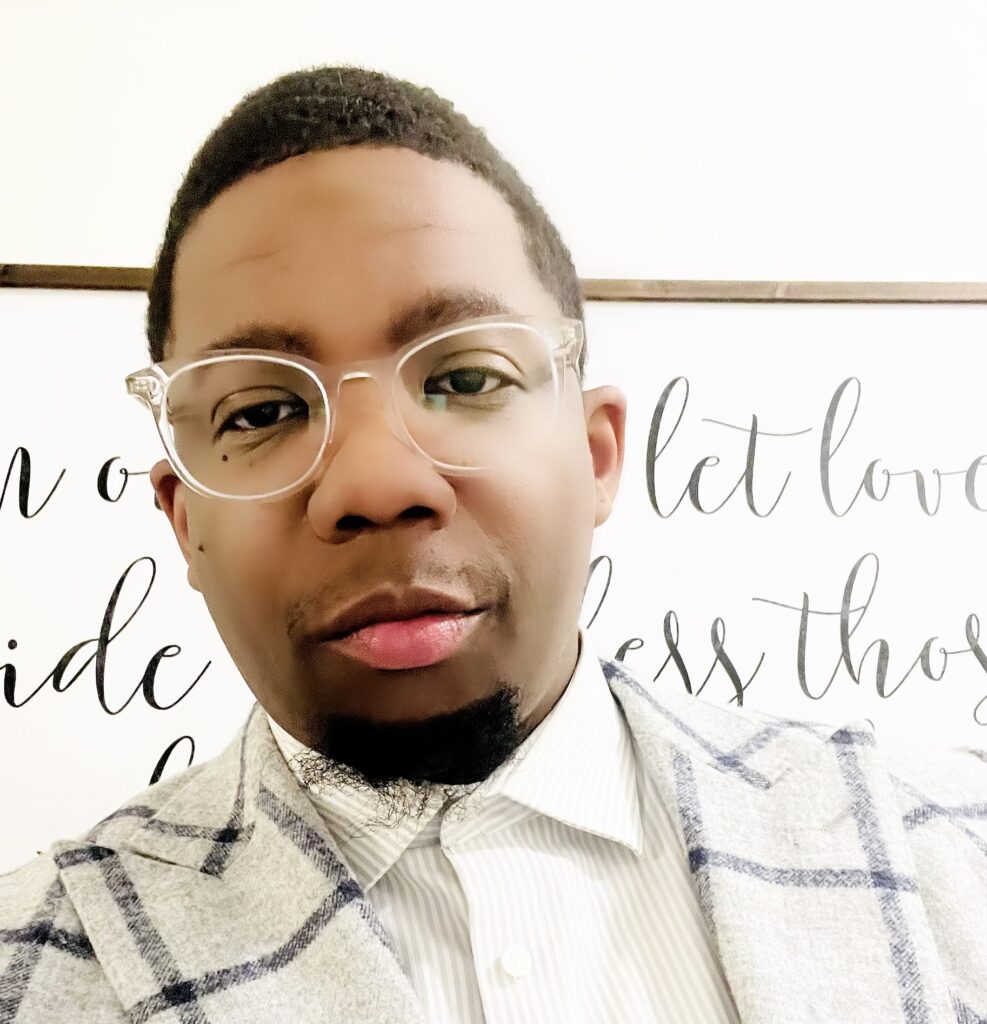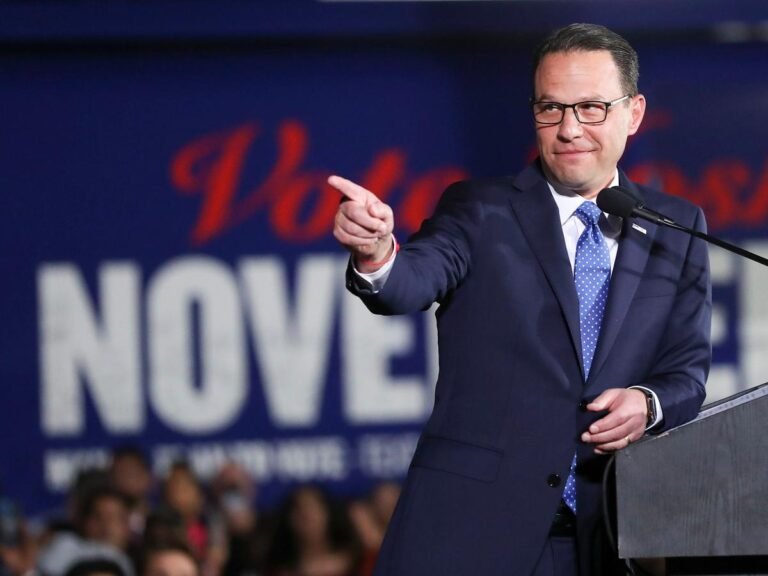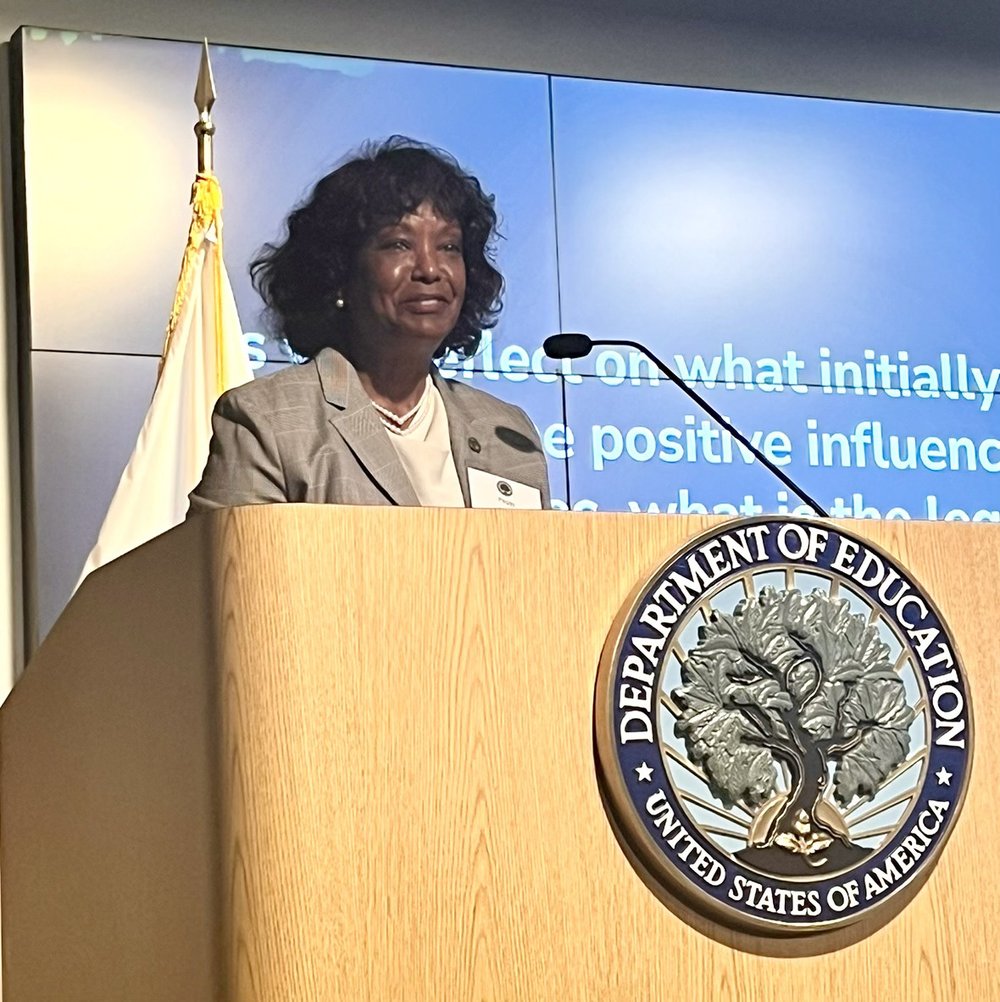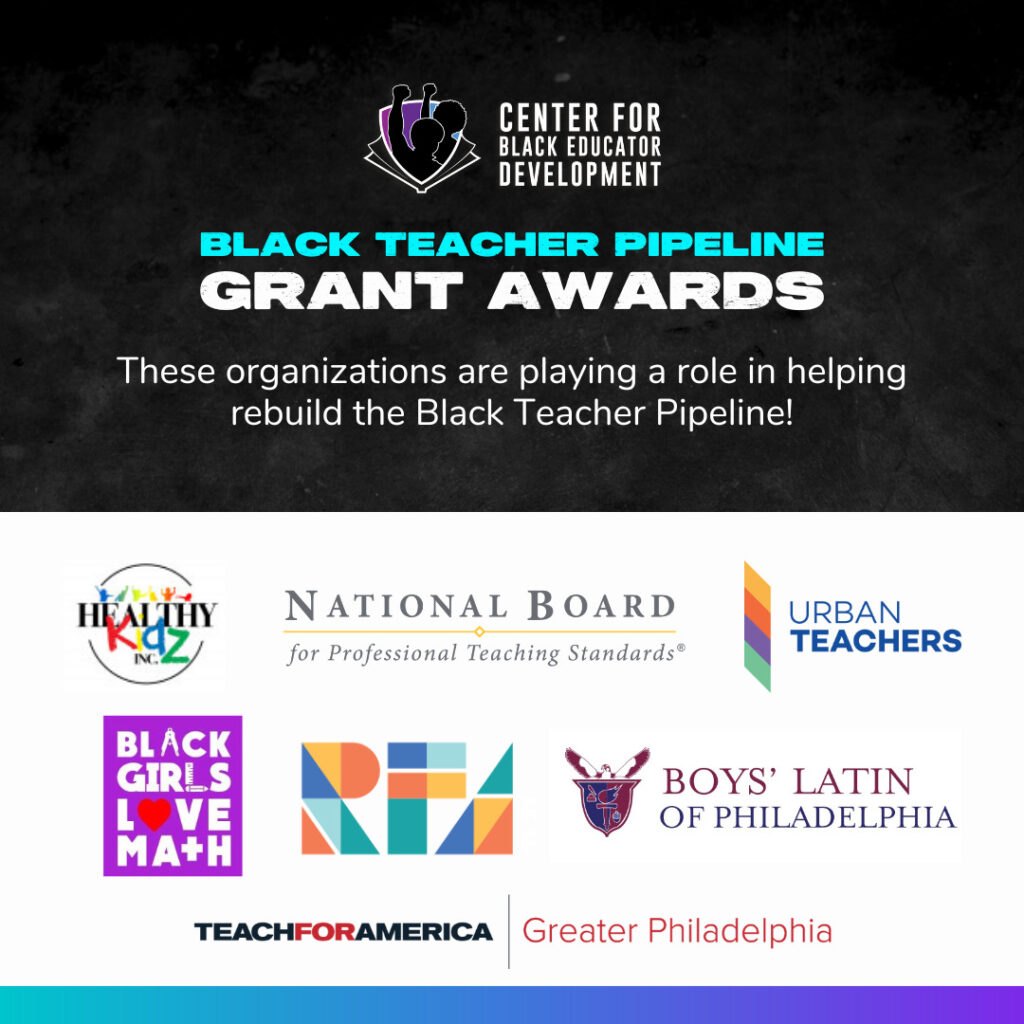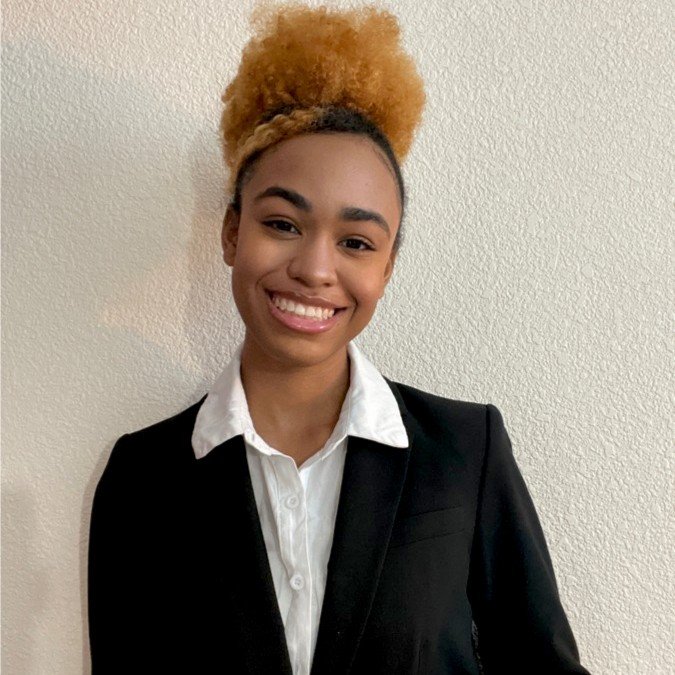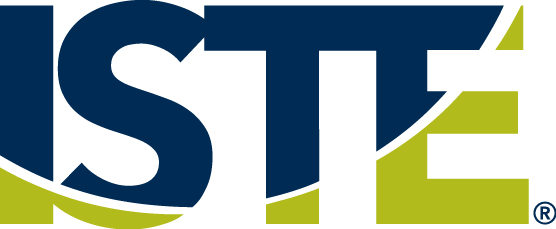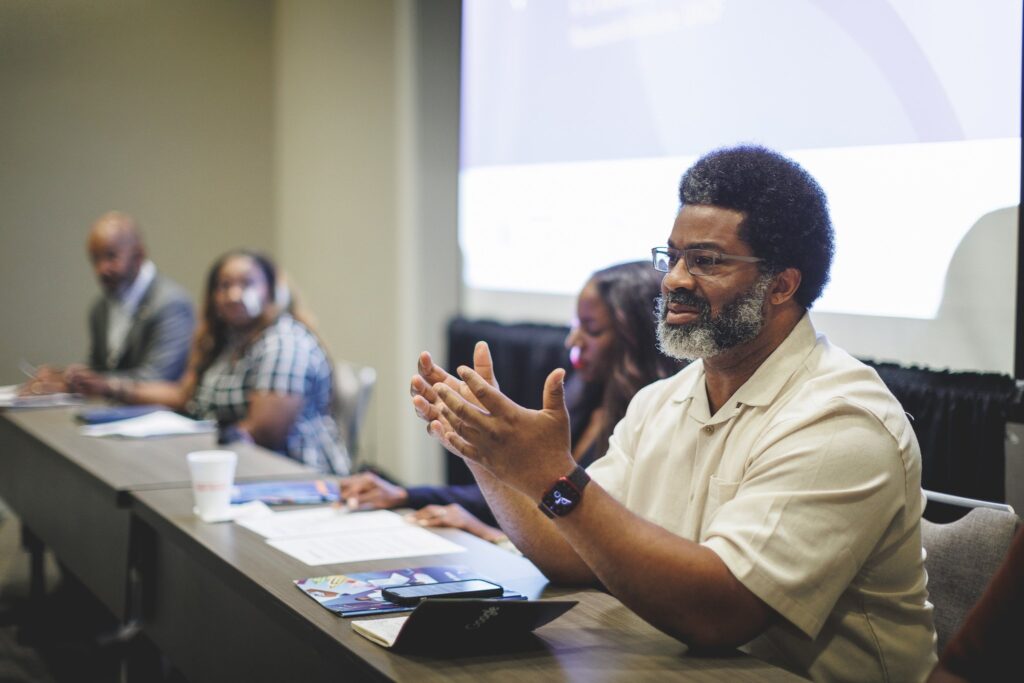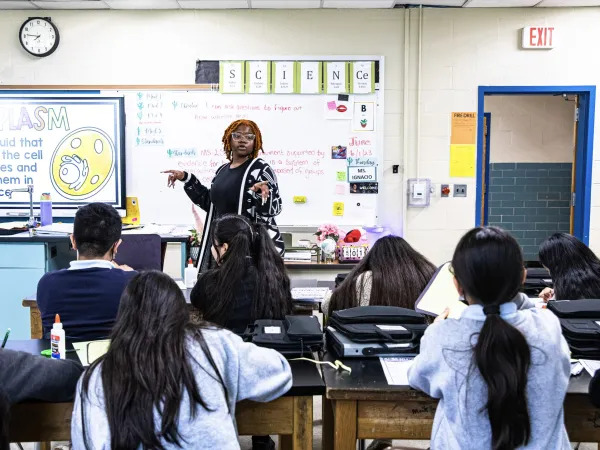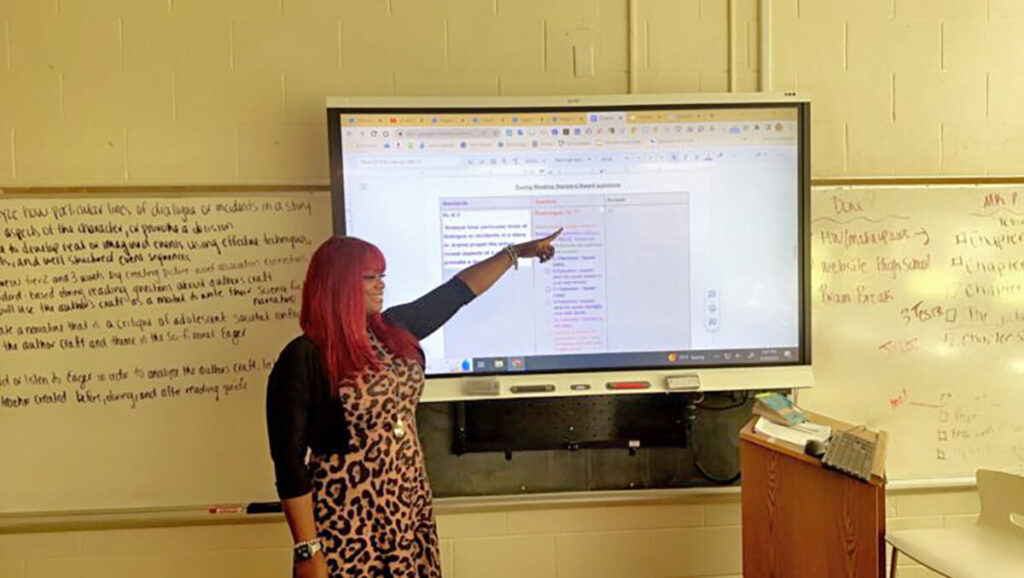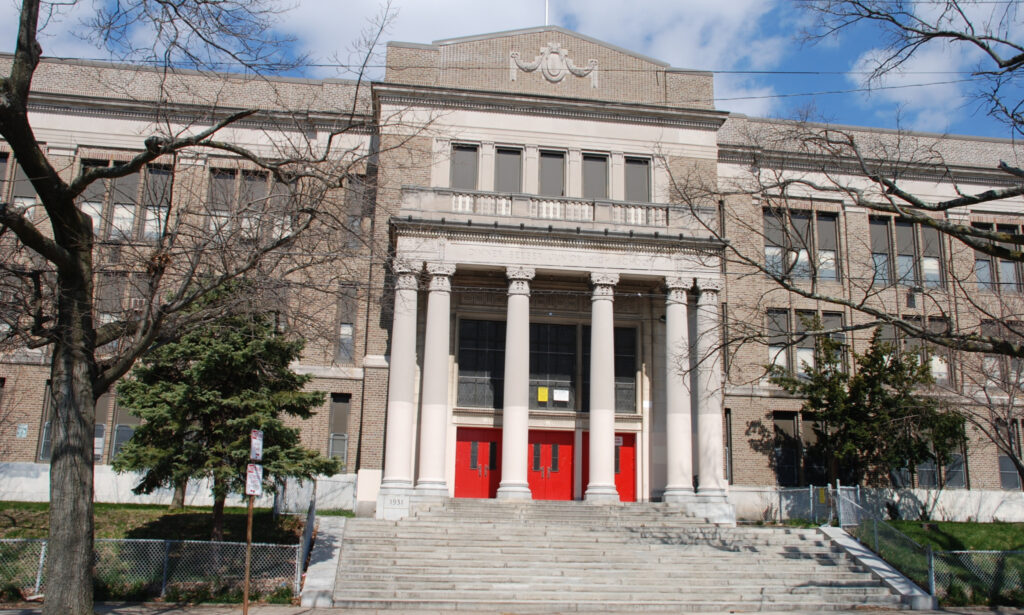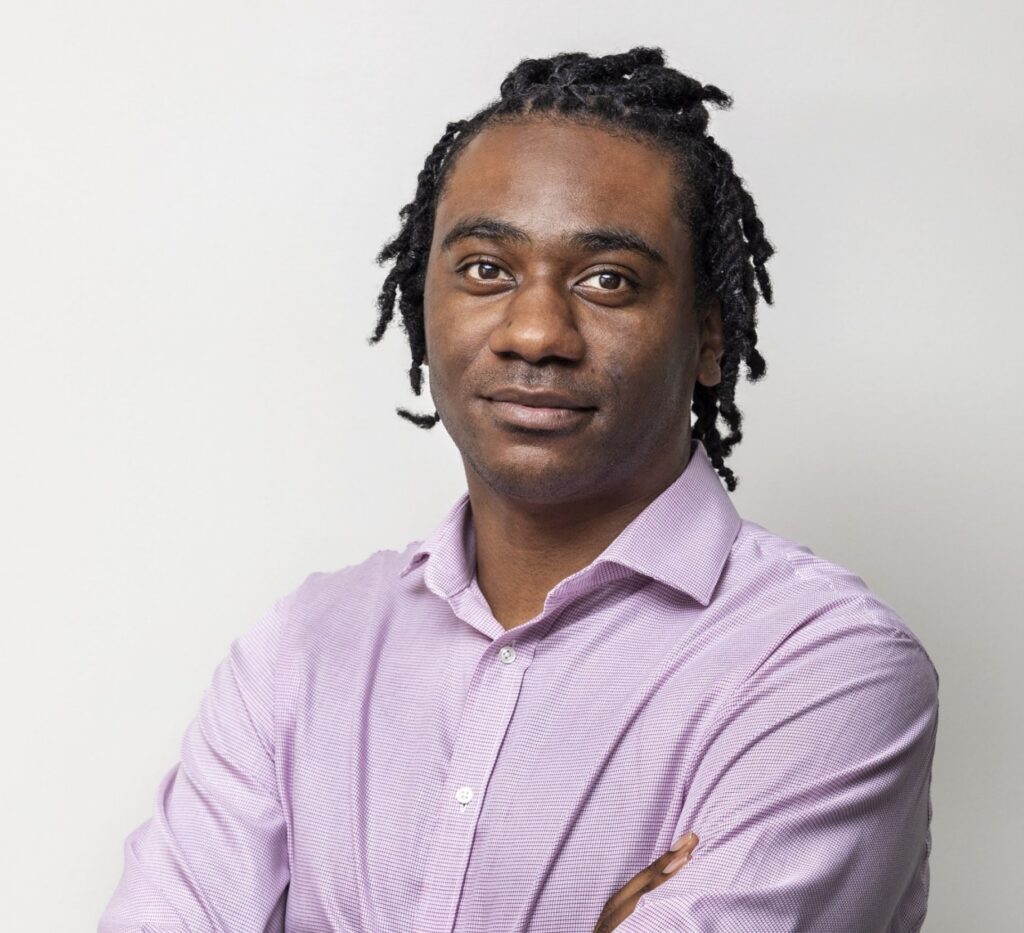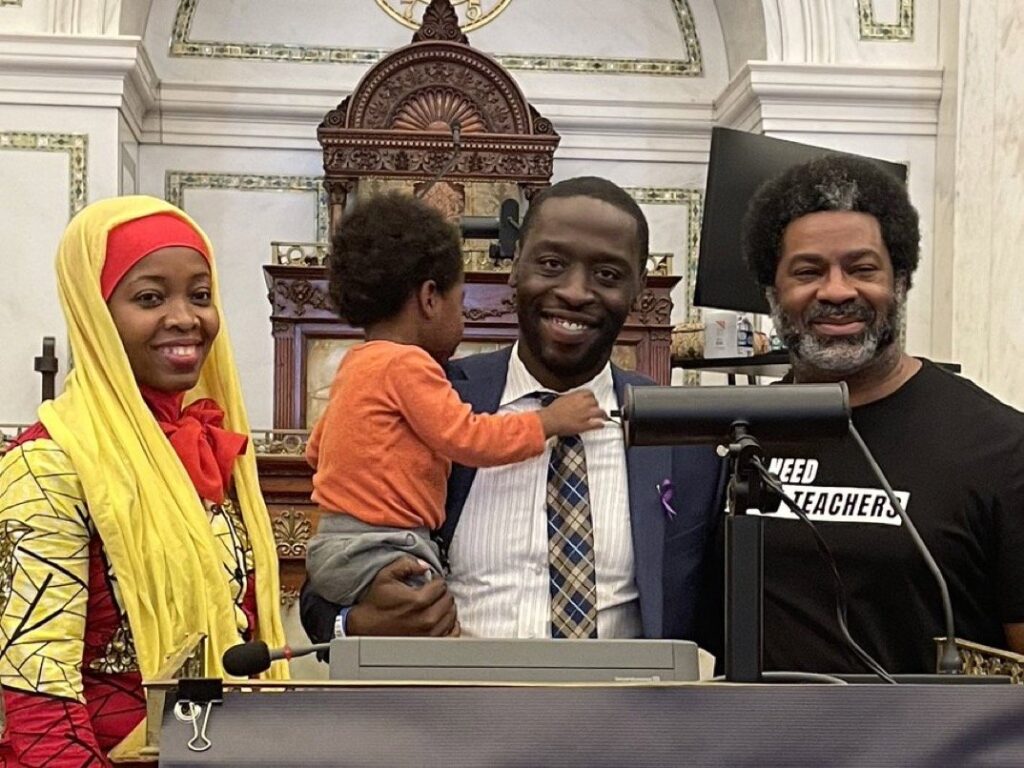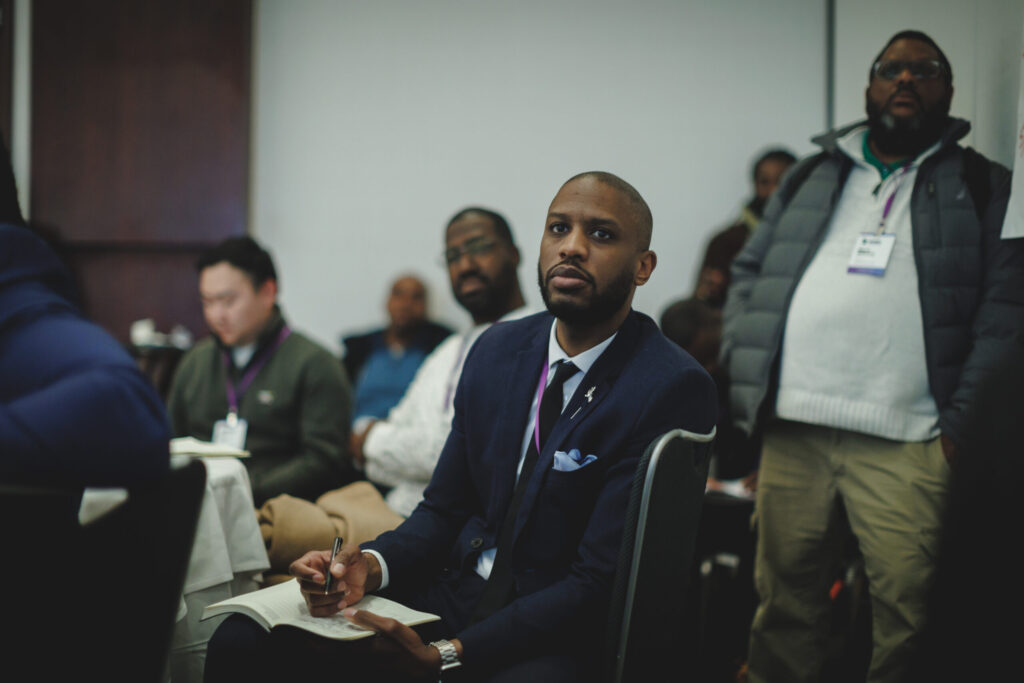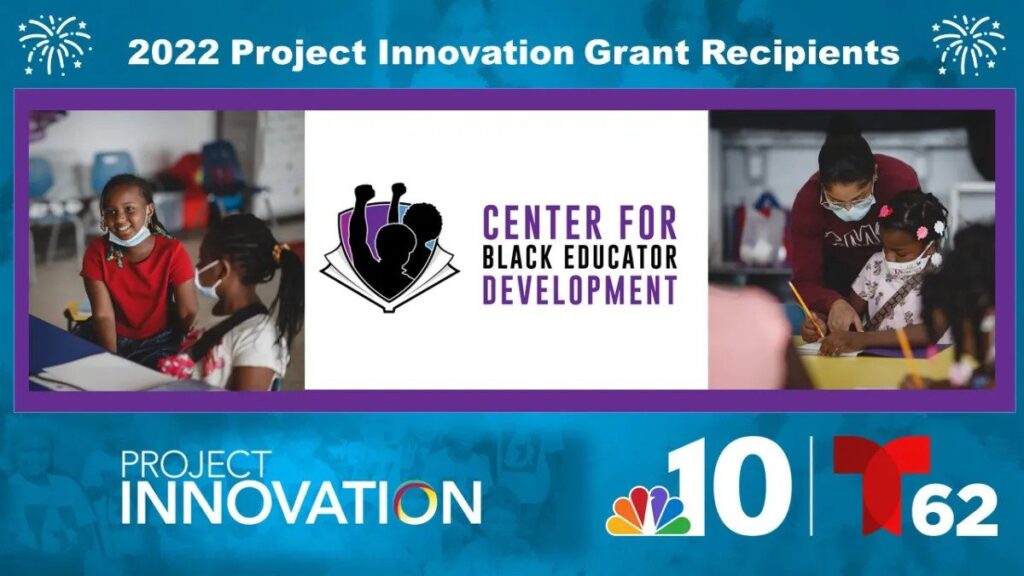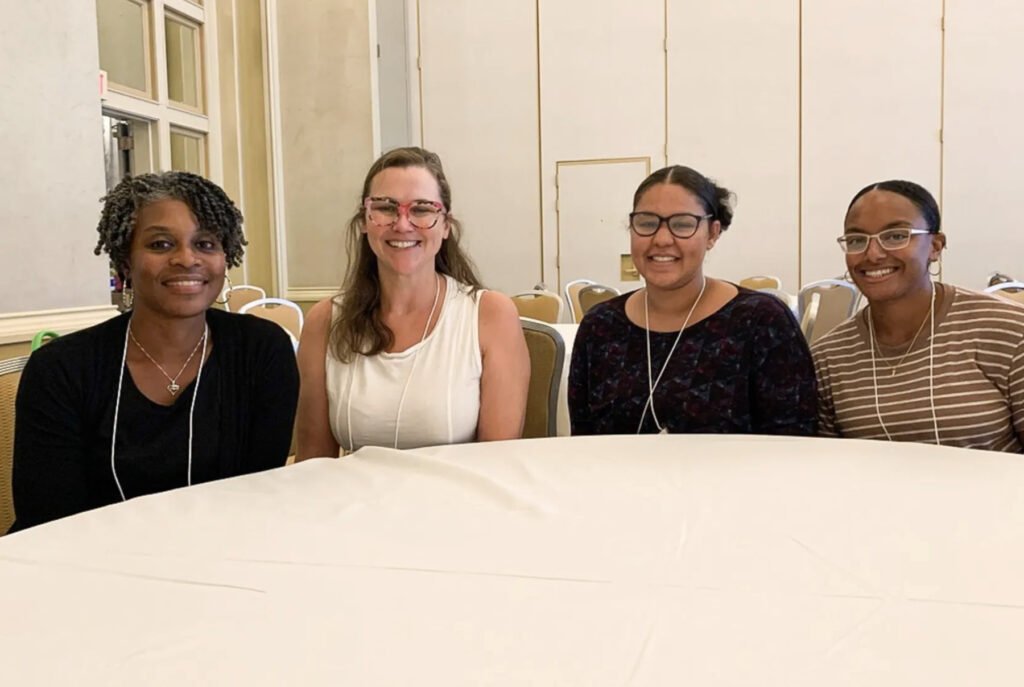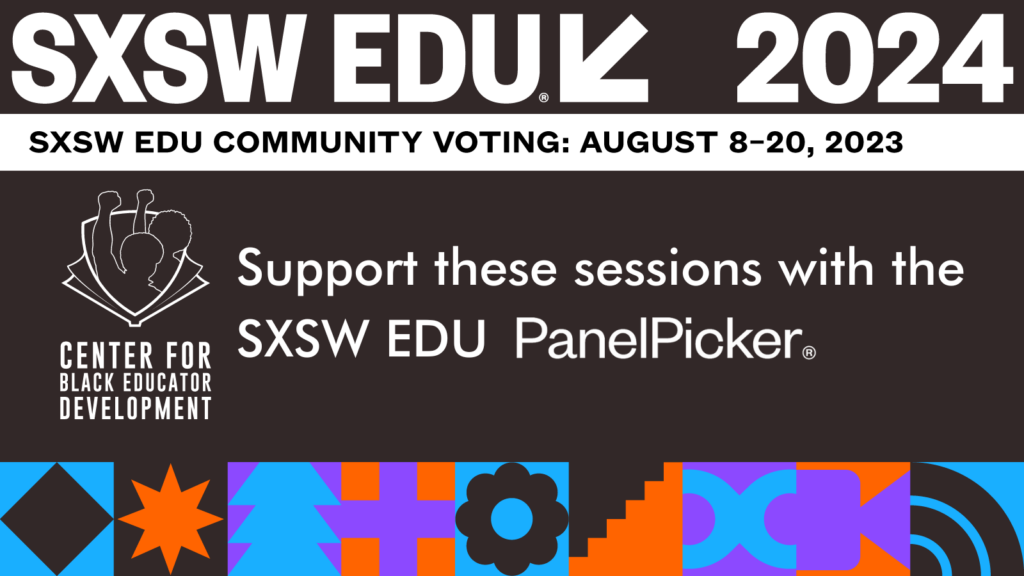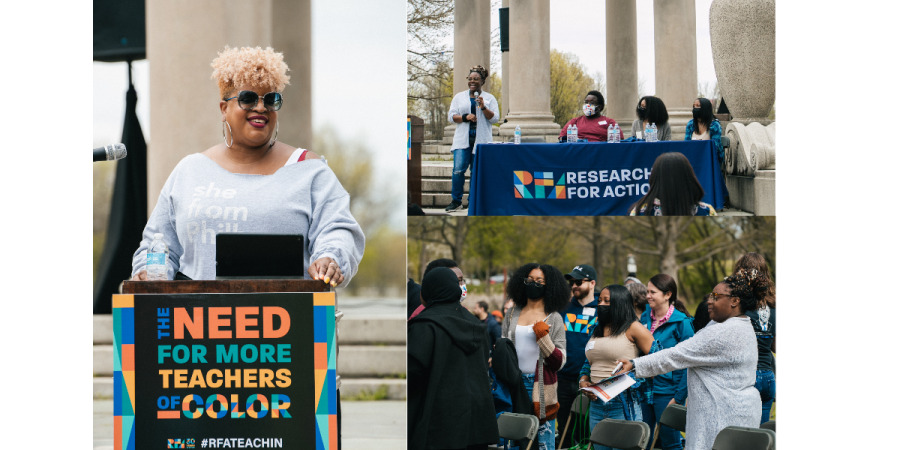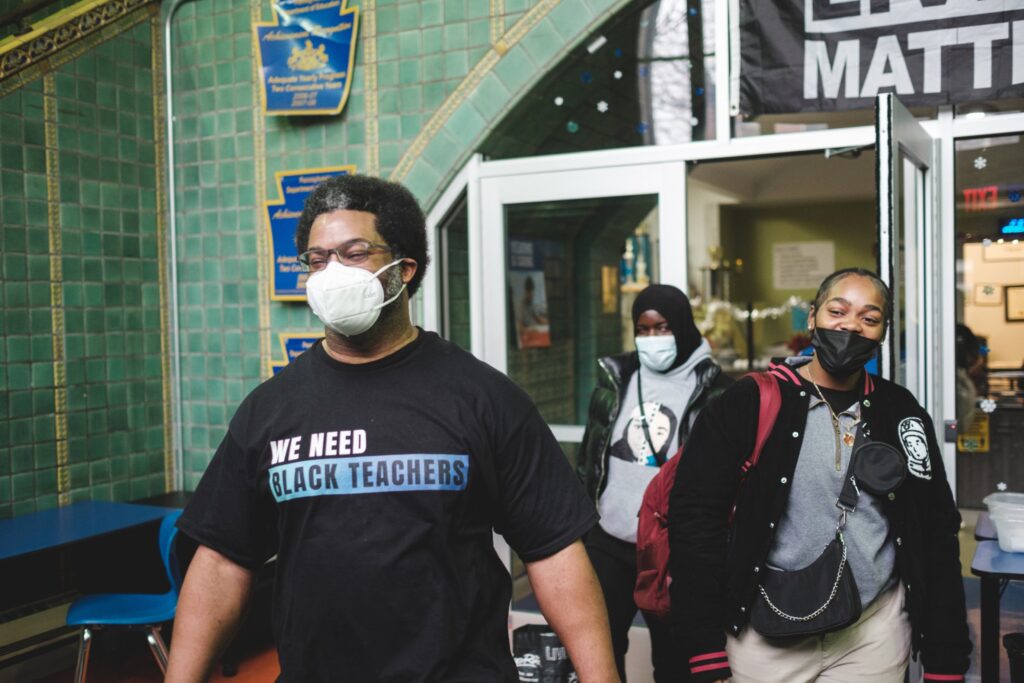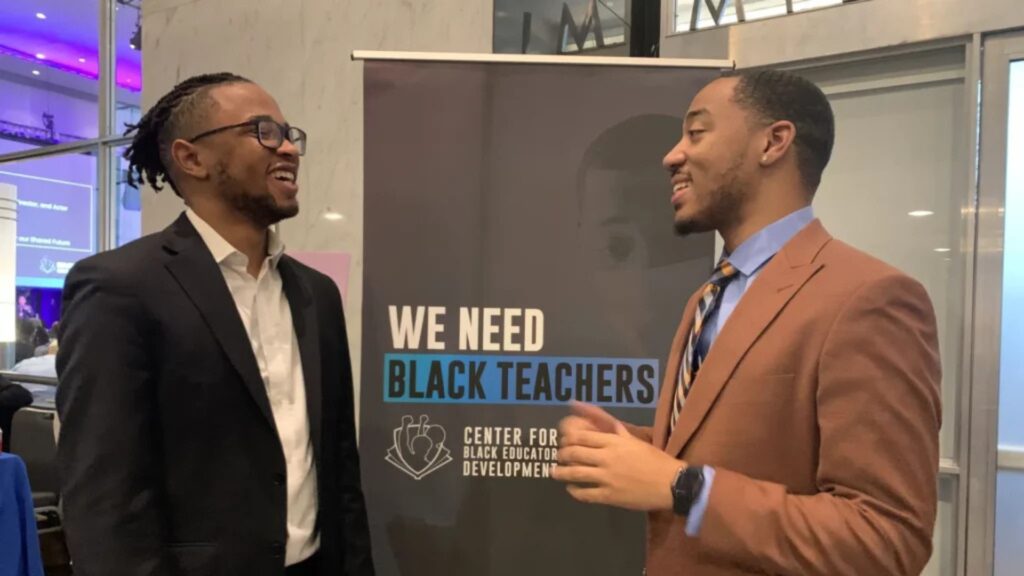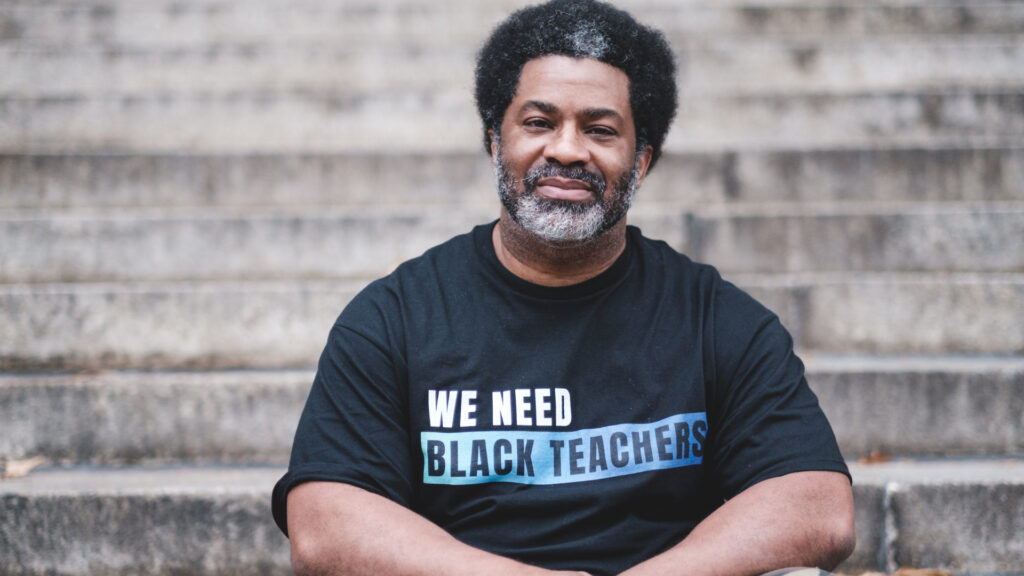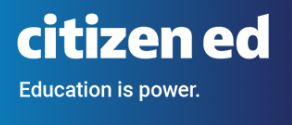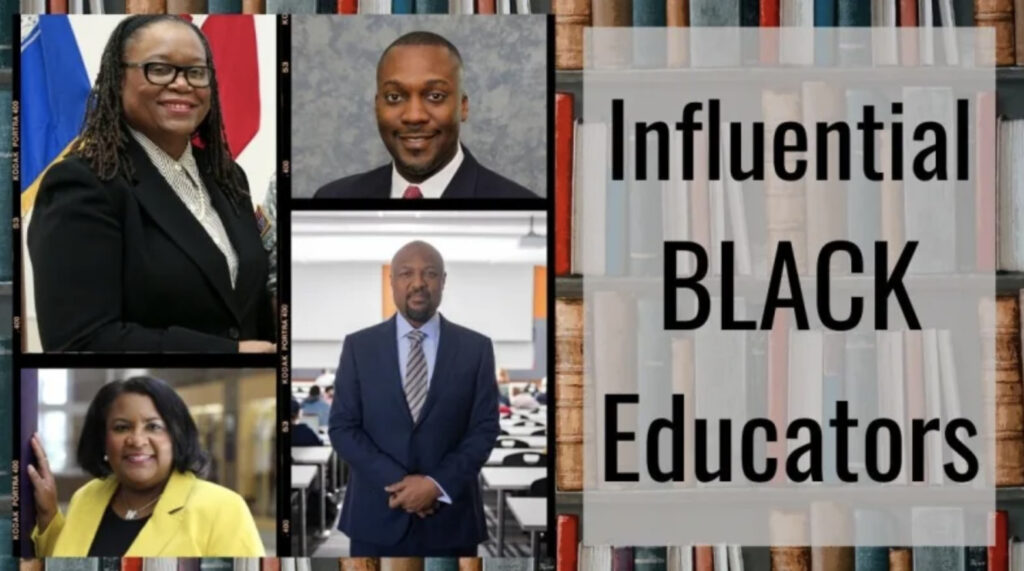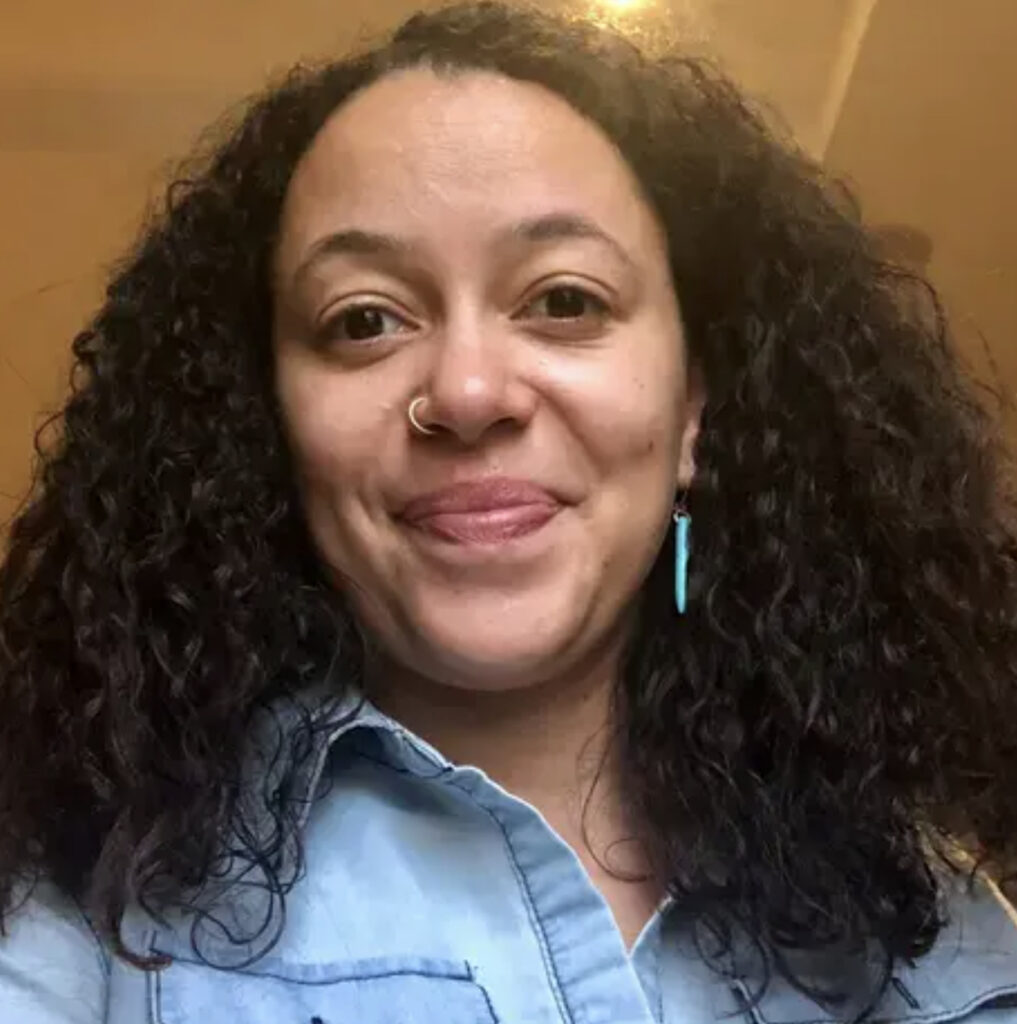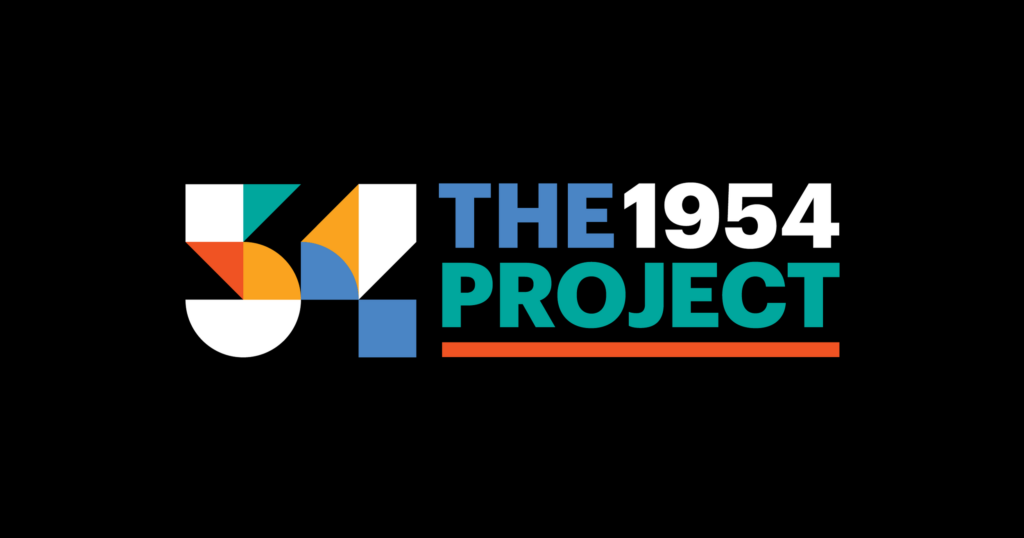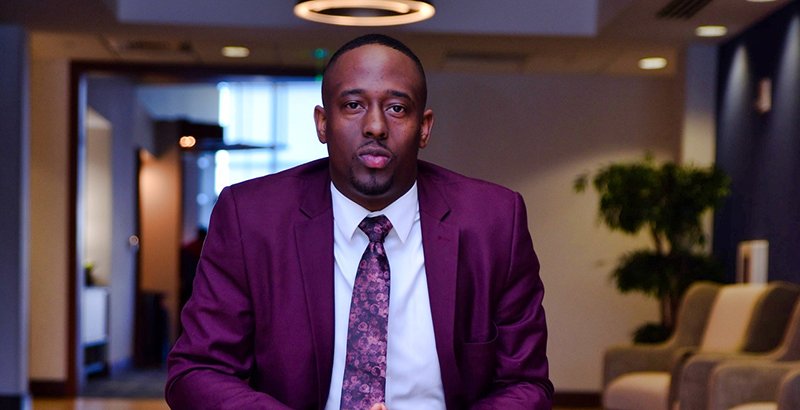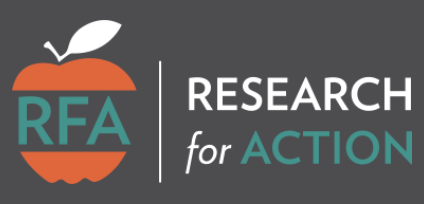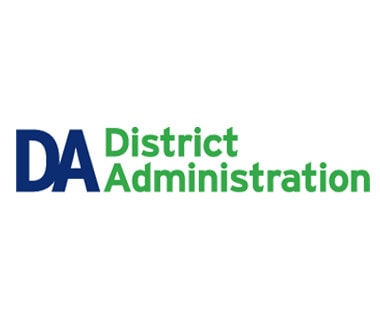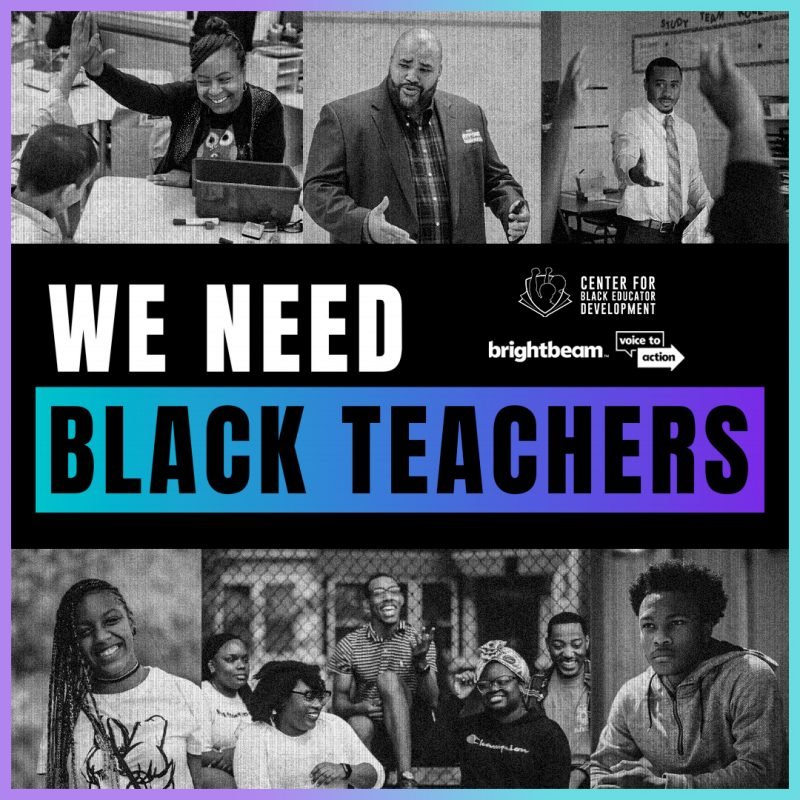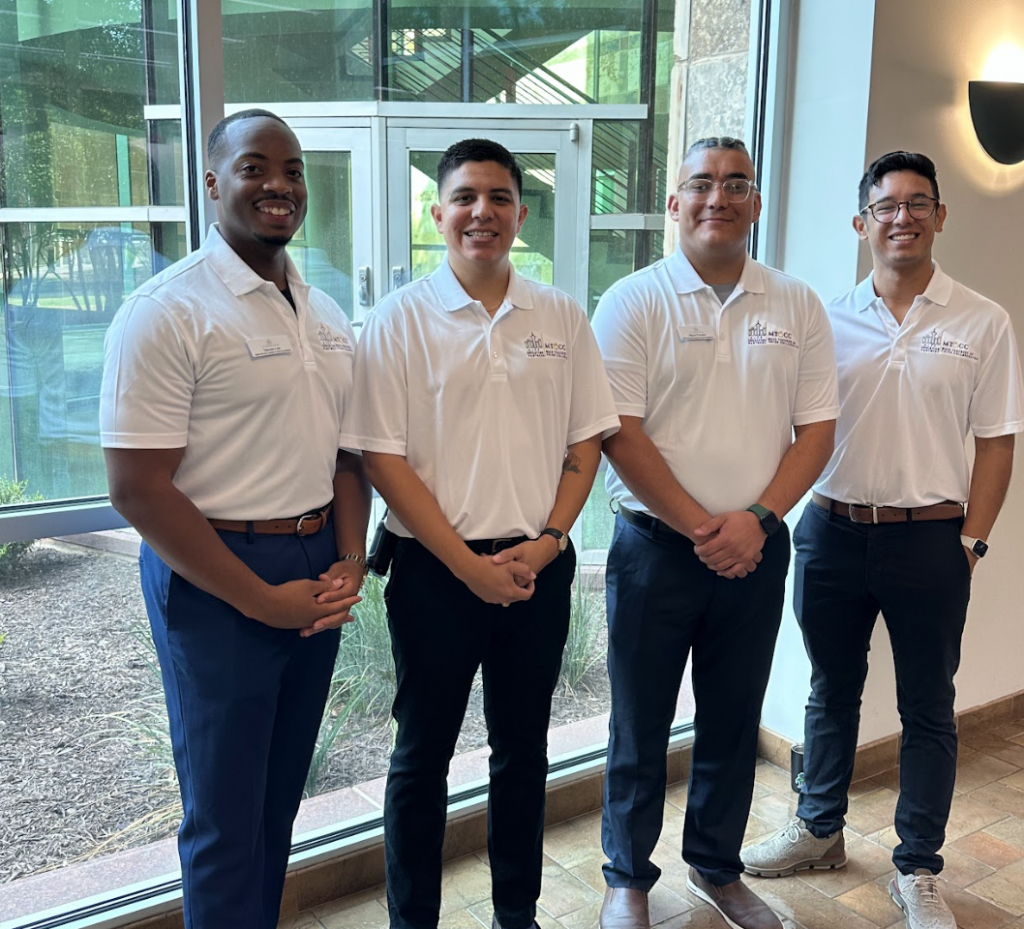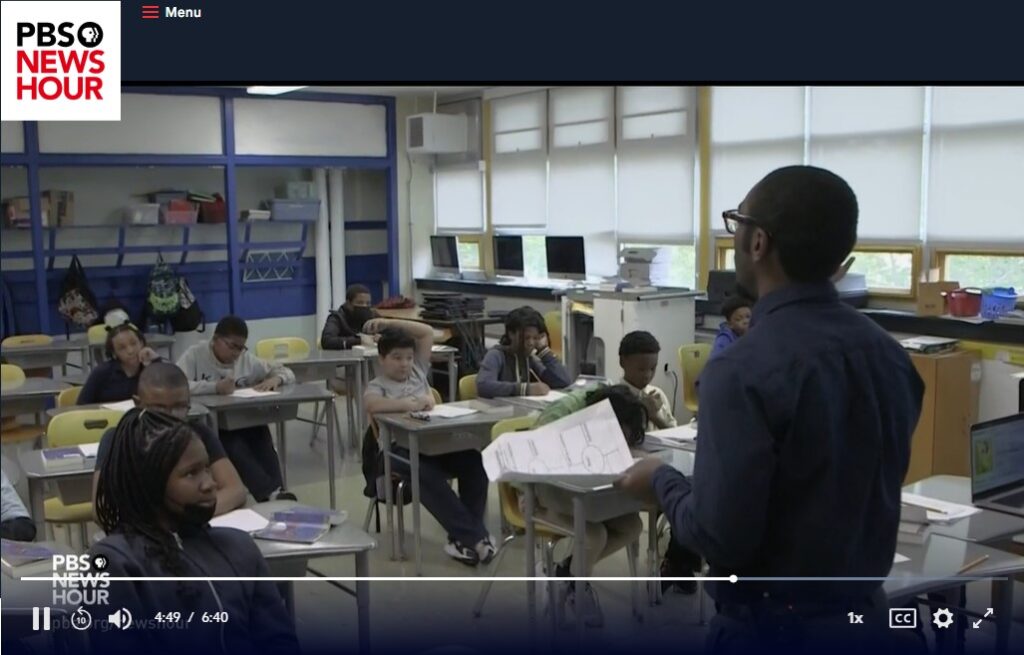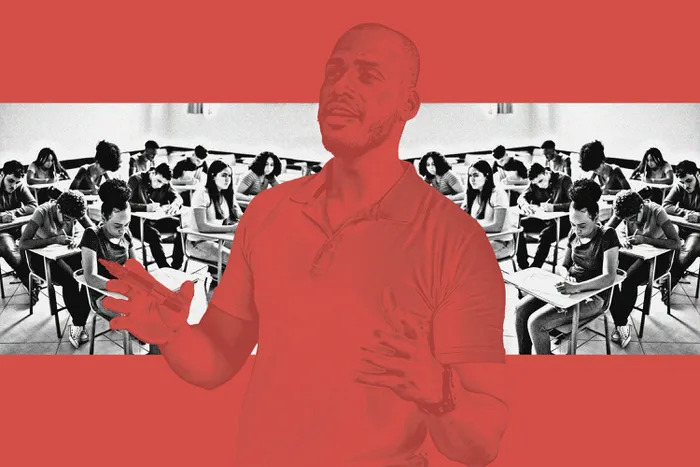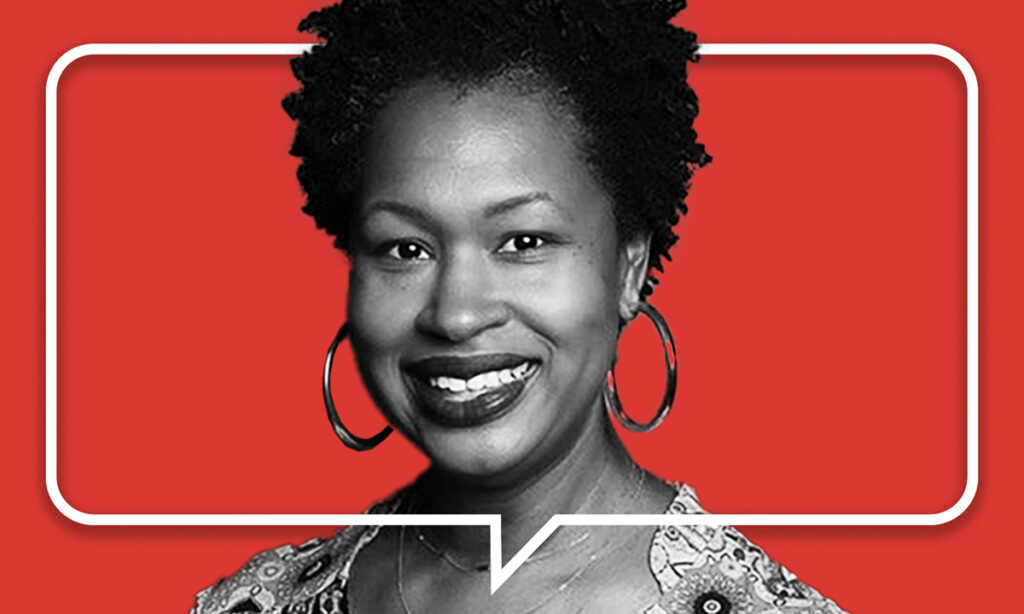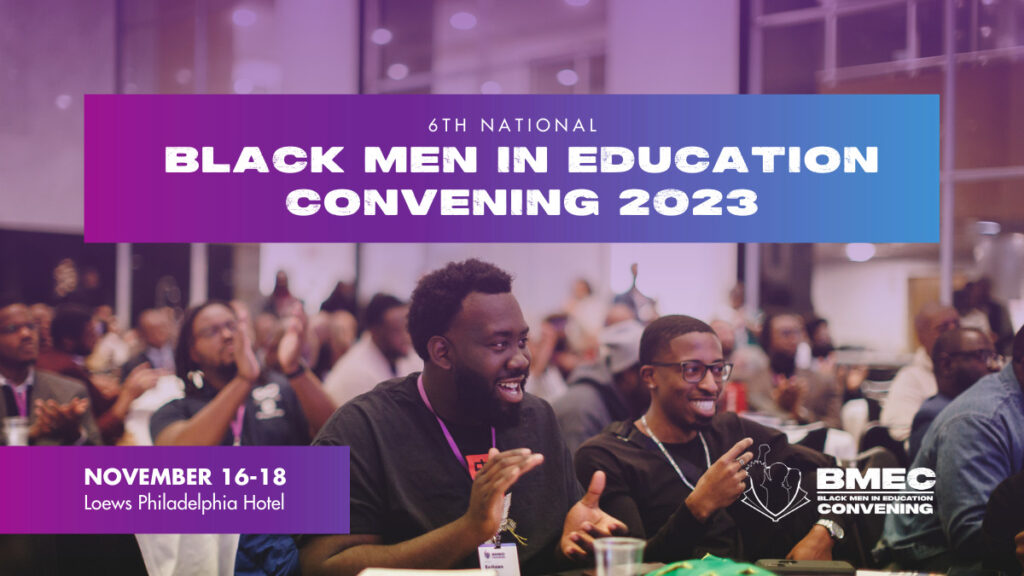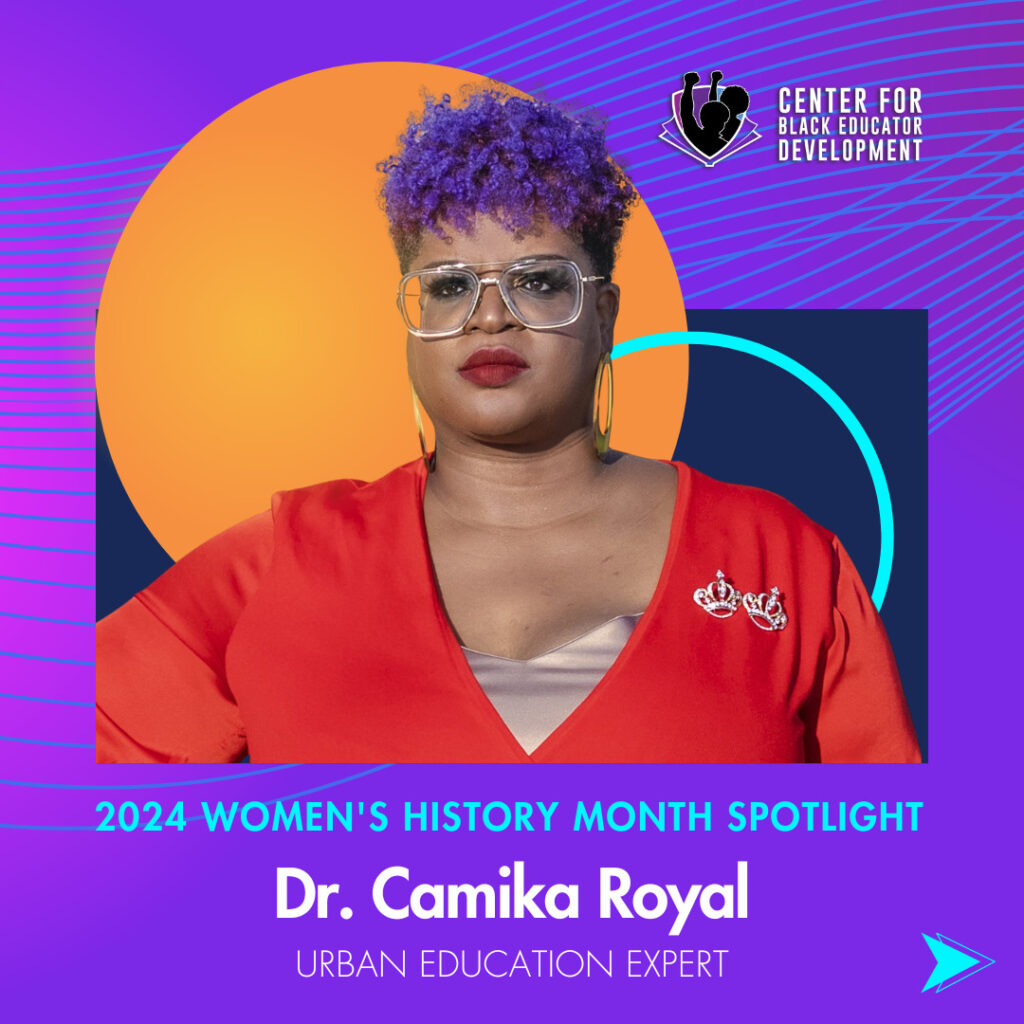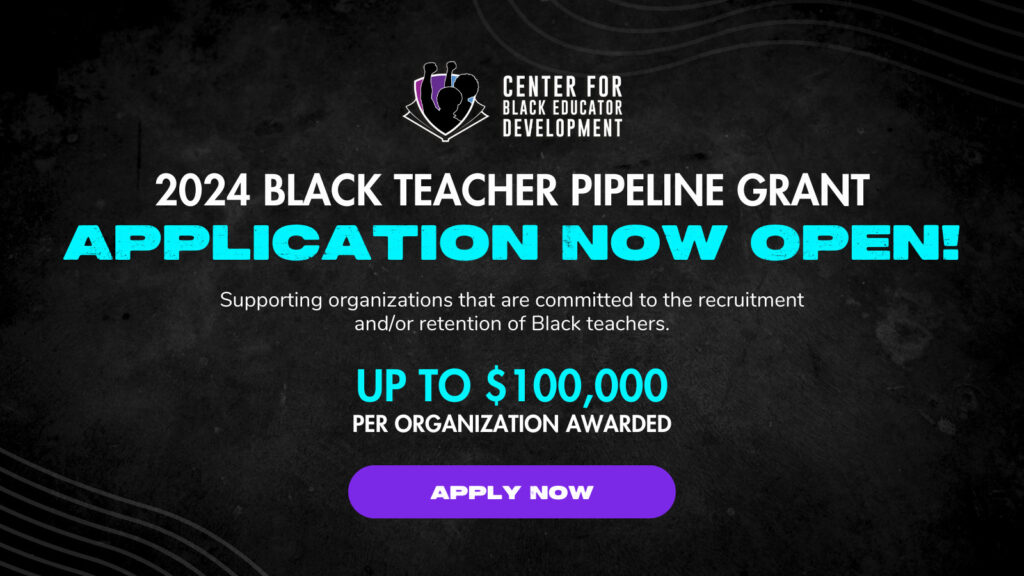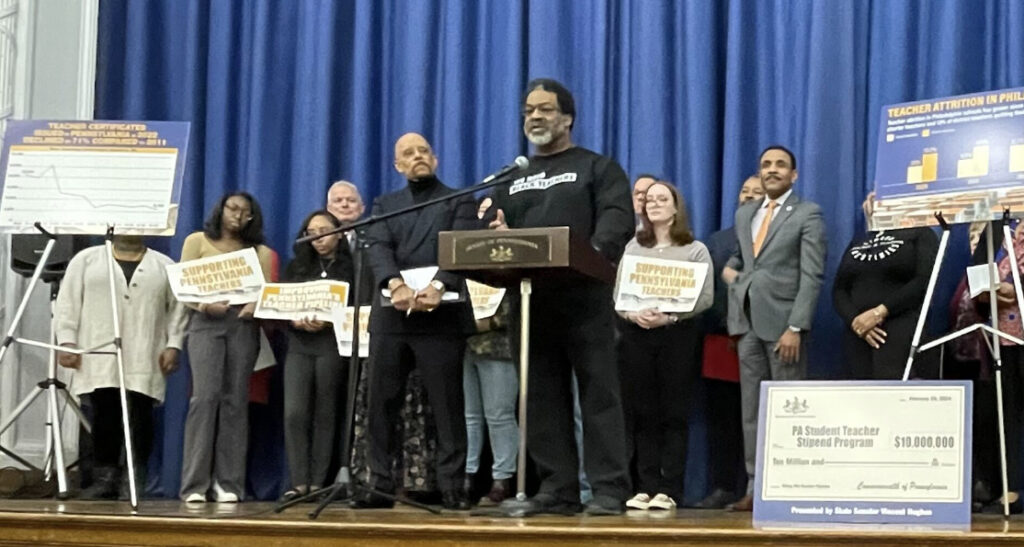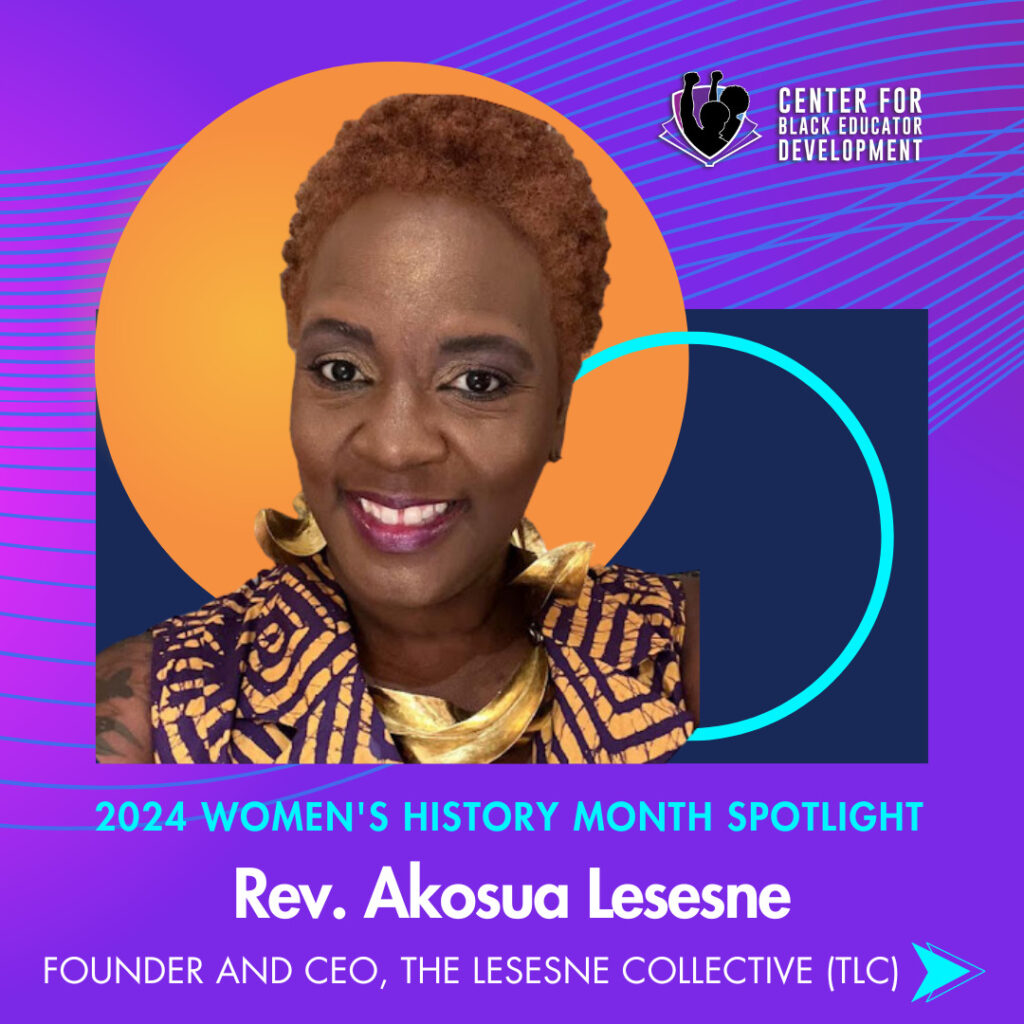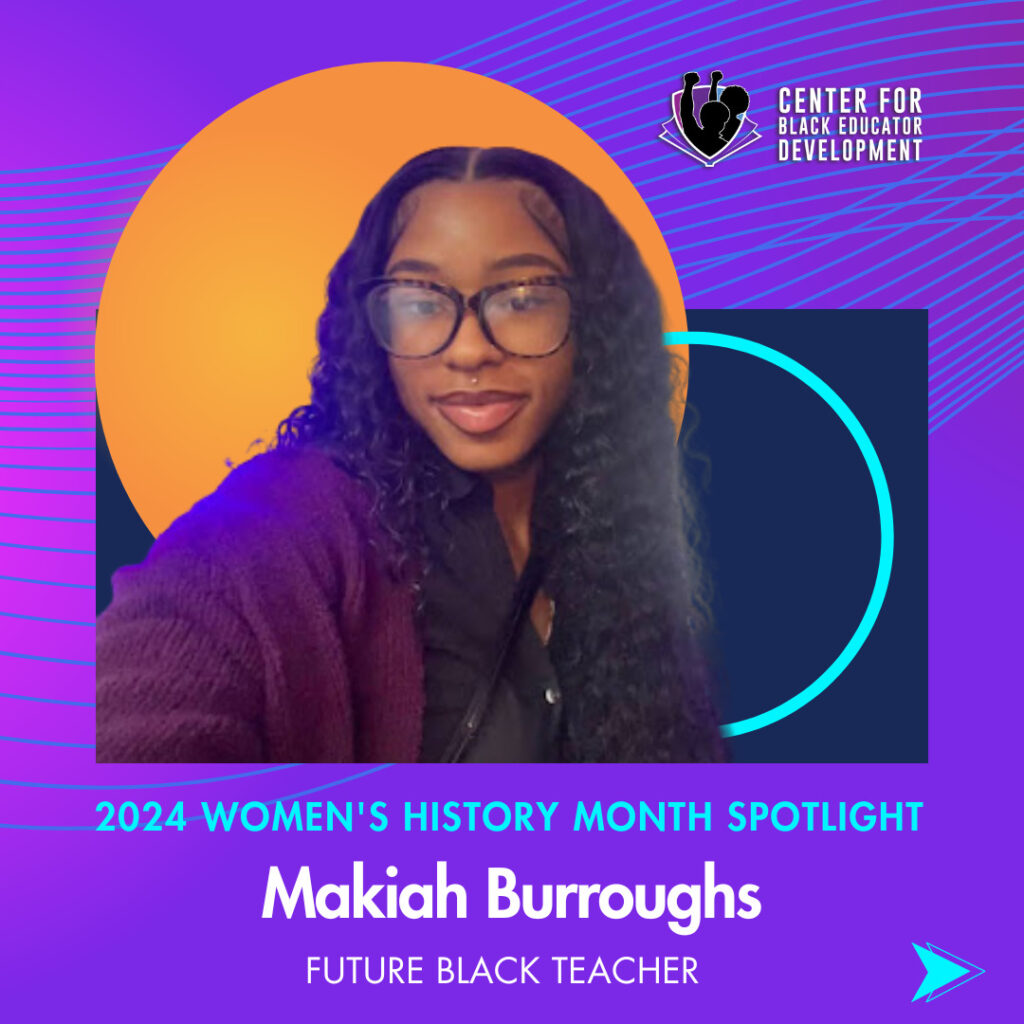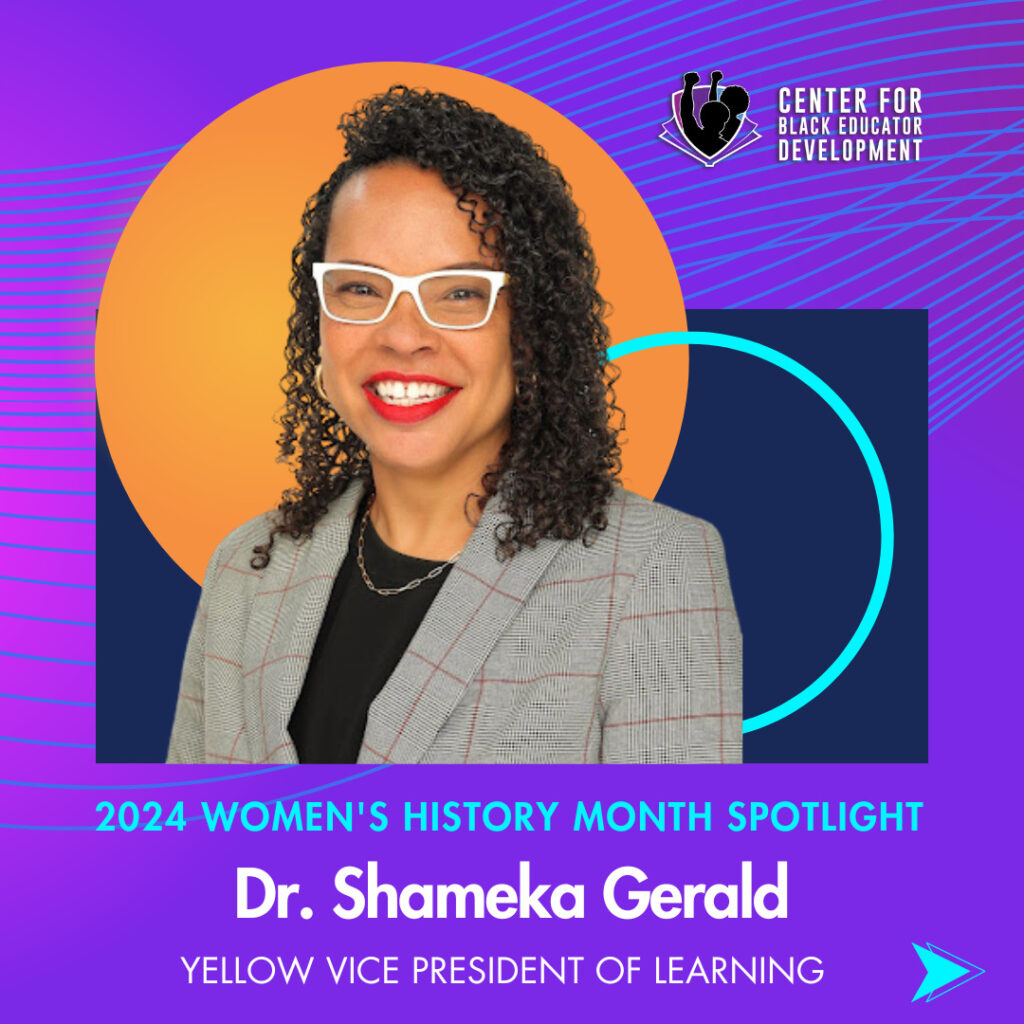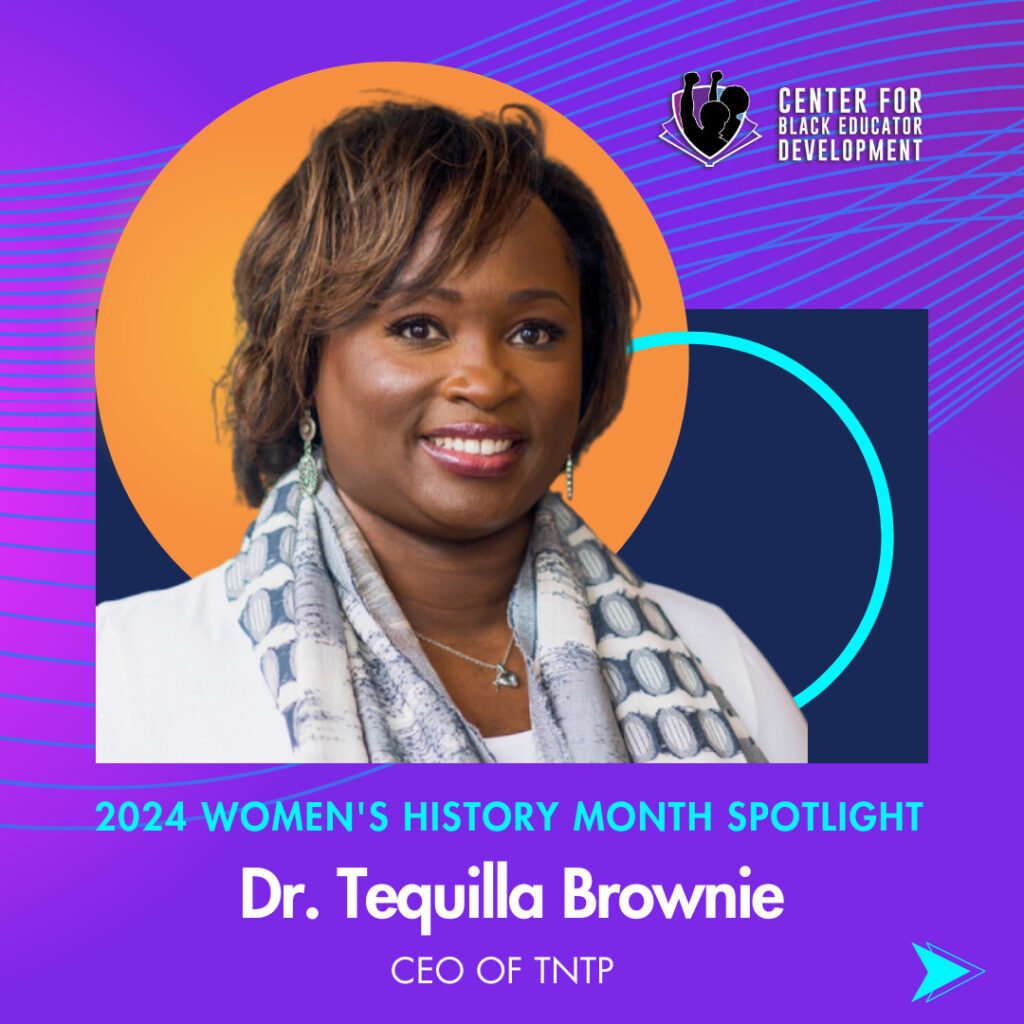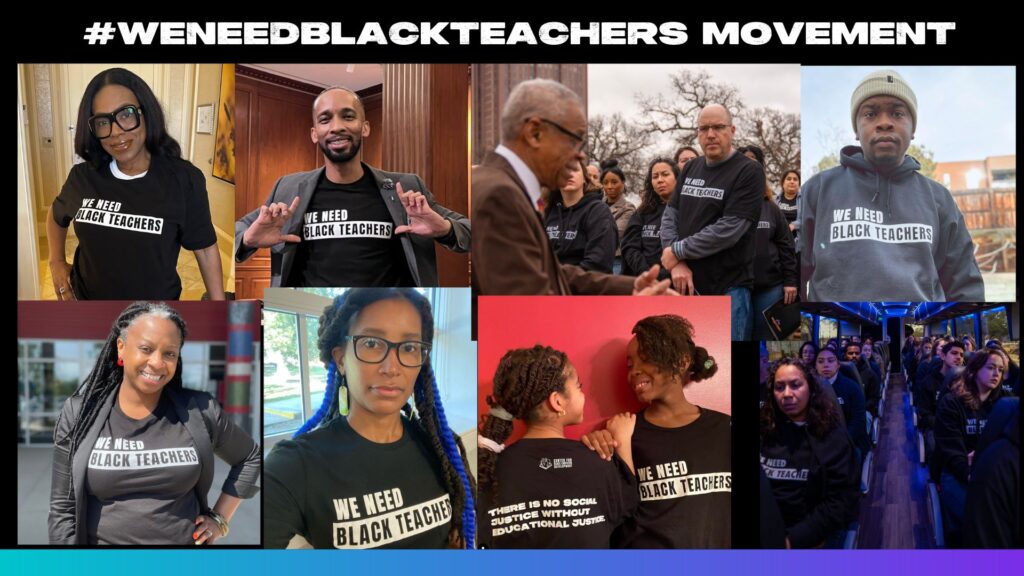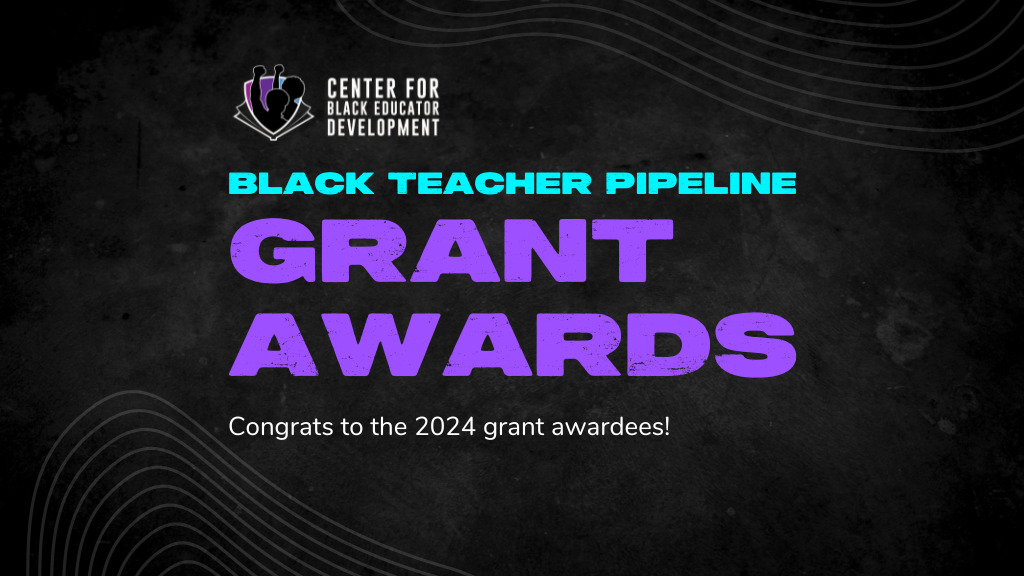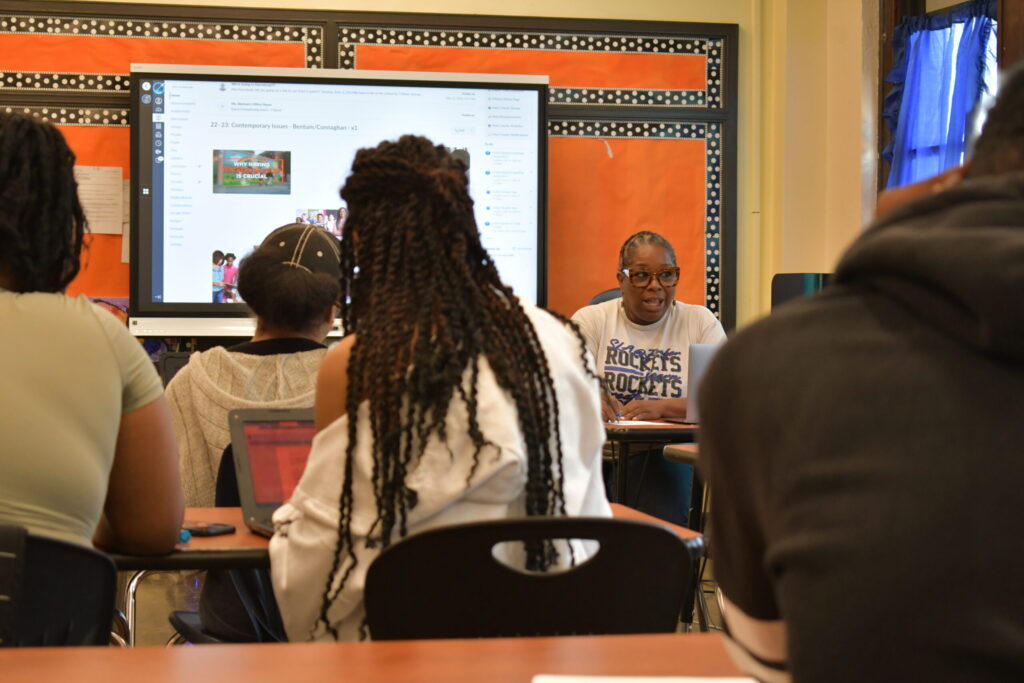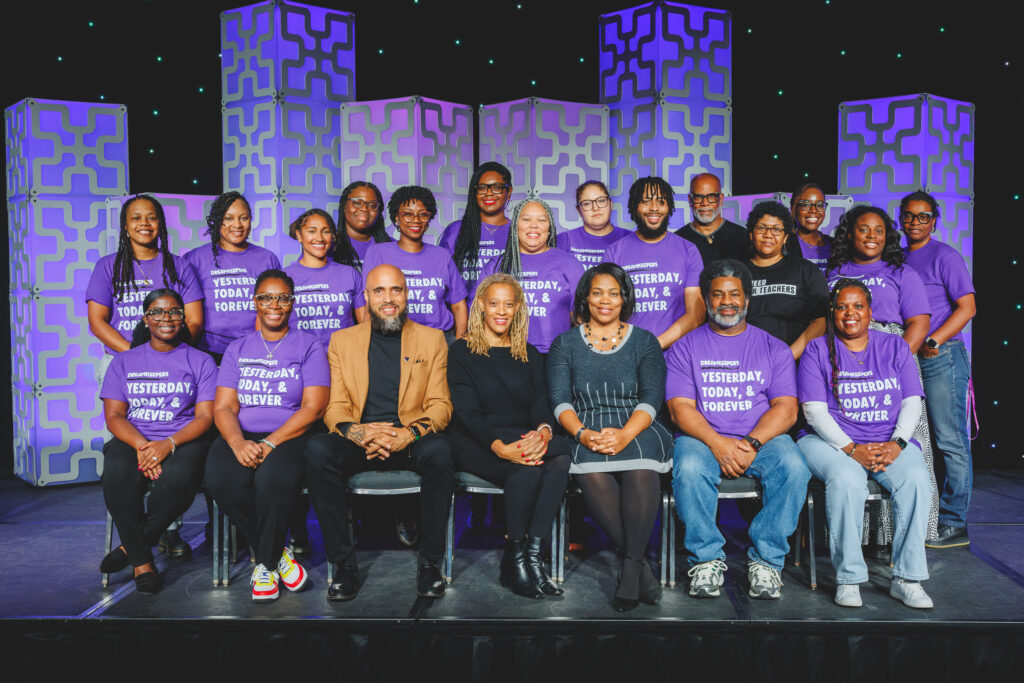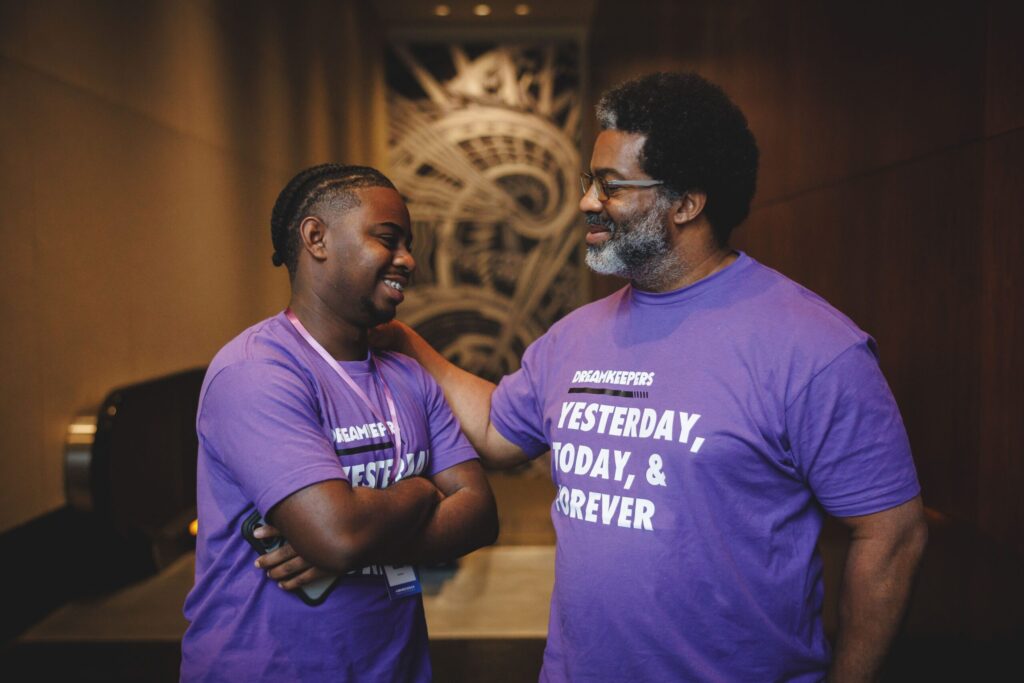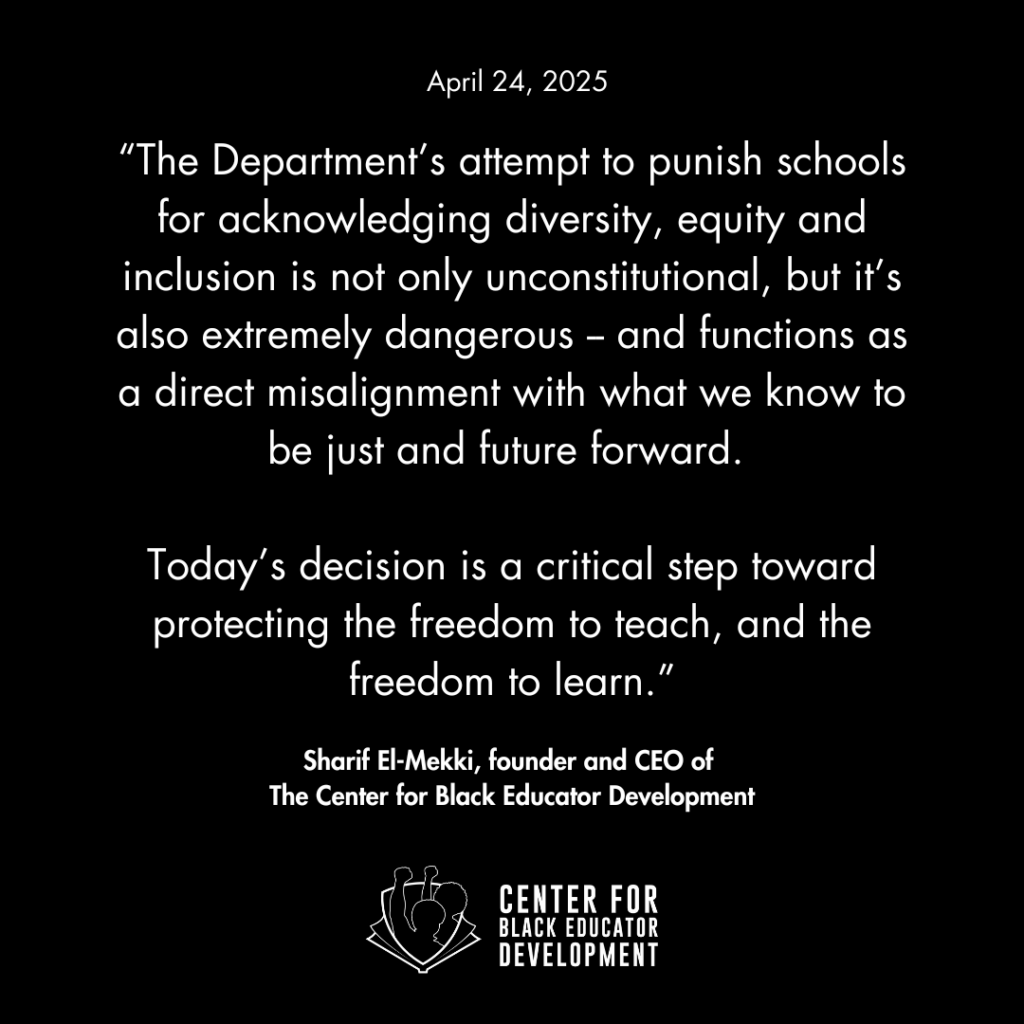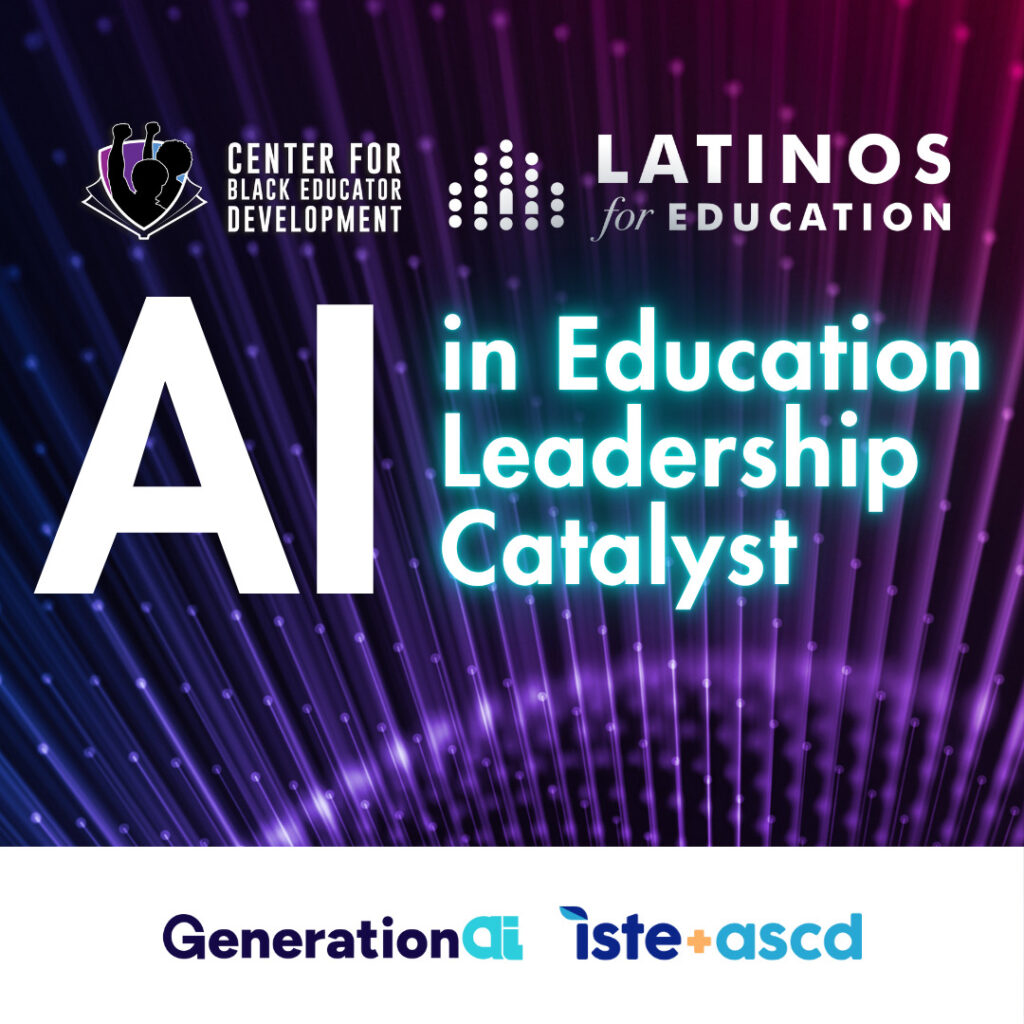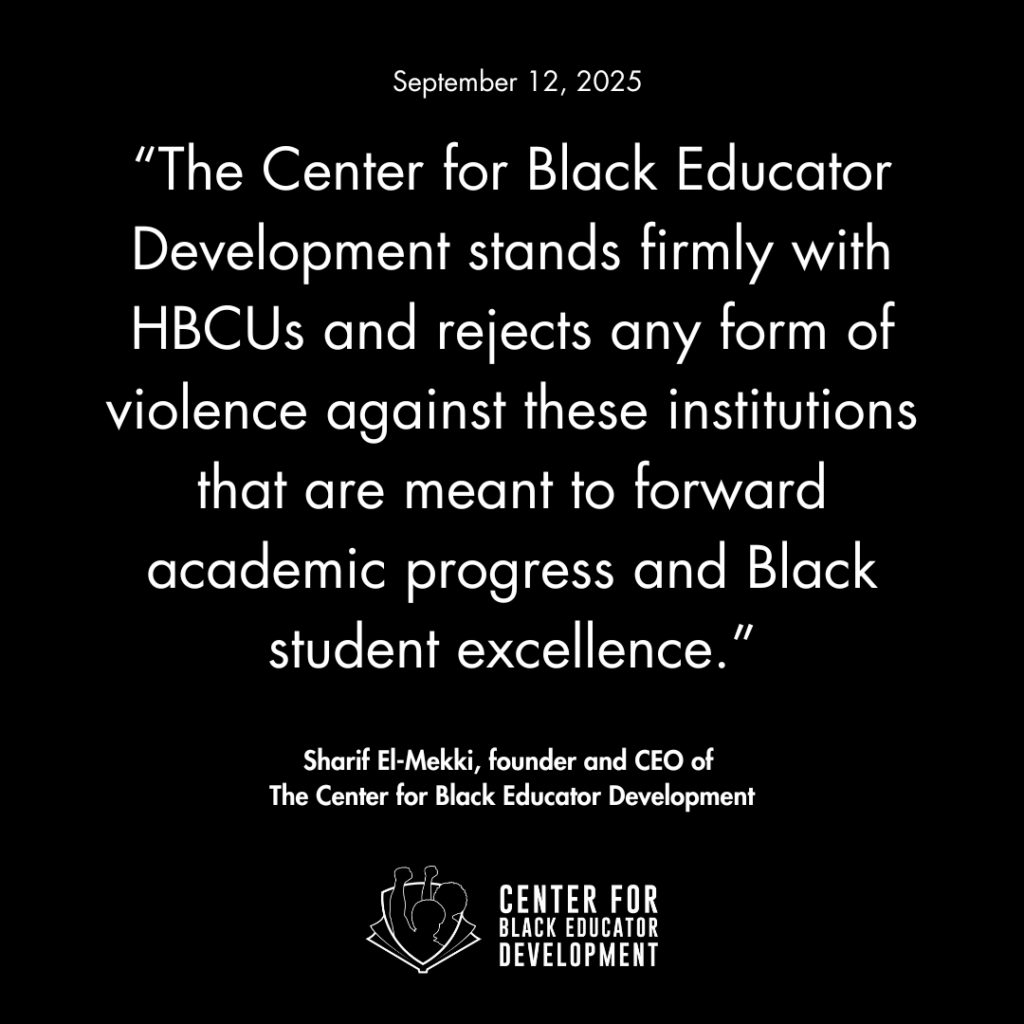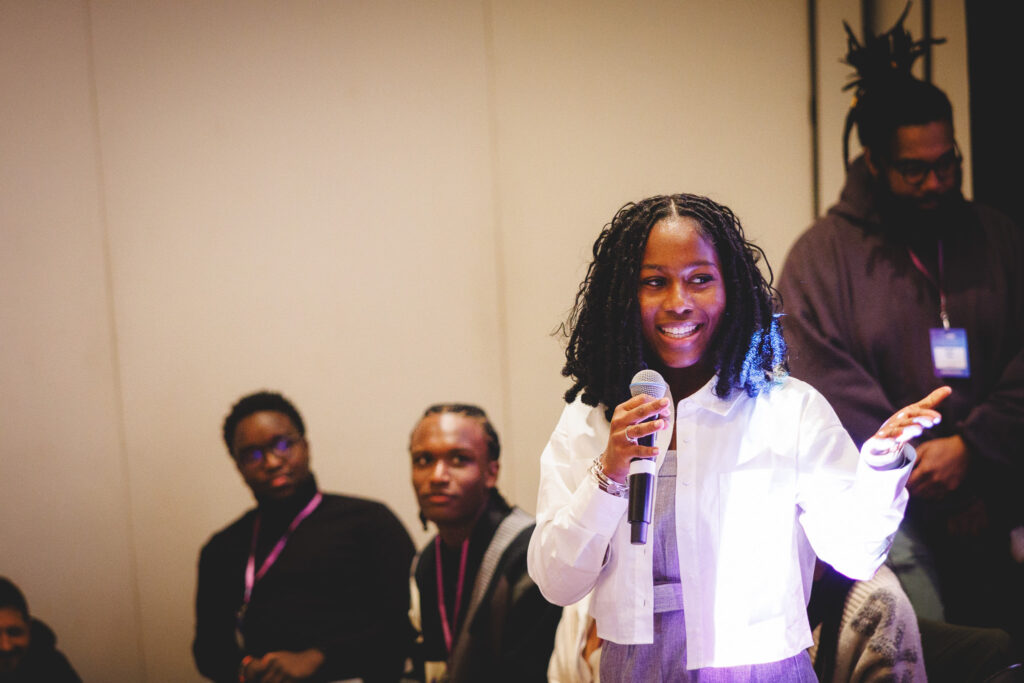The Center’s CEO Testifies on Capitol Hill for Educator Diversity
On September 25, 2024, Sharif El-Mekki, co-founder and CEO of the Center for Black Educator Development, testified before the U.S. House Committee on Education and the Workforce in Washington, DC. to discuss the importance of innovative practices in teacher preparation programs, including the urgency of "Rebuilding the Black Teacher Pipeline."
We want to thank the committee for the invitation, along with our many ongoing partners working to rebuild the pipeline:
- 1 Million Teachers of Color Coalition
- Black Teacher Pipeline Coalition
- National Board for Professional Teaching Standards
- College UnBound
- Equity Institute
- National Center for Grown Your Own
- ... and the countless supporters fighting for education equity on the behalf of Black teachers and all students
Watch his full testimony here:
Read the full transcription:
Chairwoman Foxx, Ranking Member Scott, and esteemed members of the Committee on Education and the Workforce:
Thank you for the opportunity to address you on the critical need to increase educator diversity to better serve all students. My name is Sharif El-Mekki, founder and CEO of the Center for Black Educator Development, dedicated to rebuilding the national Black teacher pipeline and enhancing educator diversity nationwide.
Growing up, I was fortunate to have numerous teachers of color. However, as an educator and principal, I realized that many students rarely encountered teachers who looked like them. This disparity is a national crisis. Research consistently shows that all students benefit from a diverse teaching workforce. Teachers of color bring unique perspectives that enrich learning environments, serve as role models, reduce stereotypes, and foster cross-cultural understanding.
For students of color, having teachers who share their background leads to improved academic performance, higher graduation rates, and increased college enrollment. Studies show that Black students who have even one Black teacher by third grade are 13% more likely to enroll in college; with two, that likelihood rises to 32%. For white students, exposure to diverse educators prepares them for a multicultural society and enhances problem-solving and critical thinking skills.
Despite Black students making up about 15% of the student population, Black teachers comprise only about 7% of the teaching workforce. This gap reflects systemic barriers that prevent Black individuals from entering and remaining in the profession.
We must also consider the intersectionality of race, ethnicity, and disability. Students with disabilities from marginalized communities face compounded challenges. Diverse educators are more likely to implement inclusive practices and advocate for all students, fulfilling the promises of the Individuals with Disabilities Education Act (IDEA). Unfortunately, there's a significant shortage of special education teachers, particularly among educators of color, exacerbating disparities for students with disabilities.
Several barriers hinder the recruitment and retention of diverse educators. The COVID-19 pandemic has intensified teacher shortages. Enrollment in teacher preparation programs has dropped significantly, disproportionately affecting educators of color and high-need areas like special education. Financial barriers, such as the high cost of teacher preparation programs and unpaid student teaching, disproportionately impact candidates from low-income communities. Additionally, a lack of mentorship, professional development, and leadership pathways leads to higher attrition rates among educators of color.
To address these challenges, innovative alternative pathways are being developed nationwide. Programs like those offered by College UnBound and the Equity Institute support teaching assistants in earning their degrees, leading to a 400% increase in applications and a 97% retention rate. The National Center for Grow Your Own helps state and local agencies launch programs that build long-term pipelines for future teachers, removing financial barriers and providing paid training.
At the Center for Black Educator Development, we introduce teaching as a viable and esteemed career path early through high school academies, pre-apprenticeship programs, and the #WeNeedBlackTeachers campaign. We develop mentorship programs, offer professional development, and ensure our educator preparation programs equip teachers to support students with disabilities effectively. We advocate for scholarships, stipends, and access to loan forgiveness programs to alleviate financial burdens. Importantly, we push for paid training opportunities, understanding that unpaid periods can be prohibitive for individuals from lower-income backgrounds.
Allow me to share the story of Imere Williams, a 2024 graduate who participated in our programs during high school and college. Upon graduation, he was hired to teach at his alma mater. As one of only two Black men in his teacher preparation program, our support provided him with a community that understood his experiences. His journey exemplifies how supportive, rigorous pathways can lead to successful outcomes without lowering professional standards.
We also host the annual Black Men in Education Convening, the largest gathering of Black educators in the country, bringing together over 1,000 educators for workshops, discussions, and networking. I extend an invitation to each of you to attend our upcoming event.
In conclusion, educator diversity is essential for educational equity and excellence. By bringing diverse voices into our classrooms, we enrich the learning environment for all students, especially those from marginalized communities and students with disabilities. I urge the Committee to:
- Support federal programs like the Augustus F. Hawkins Centers of Excellence that directly address educator diversity.
- Invest in innovative, rigorous alternative pathways that offer accessible and paid routes into teaching.
- Enhance IDEA implementation by preparing educators to meet the needs of students with disabilities and addressing shortages in special education teachers.
- Address financial barriers by providing financial support during training periods, loan forgiveness, and scholarships.
Our collective commitment to these strategies will profoundly impact students nationwide. Together, we can build an education system that reflects our country's rich diversity and upholds the promise of equal opportunity for every child.
Thank you for your time and dedication to this critical issue. I welcome any questions you may have and look forward to your potential attendance at our upcoming Black Men in Education Convening in November.


